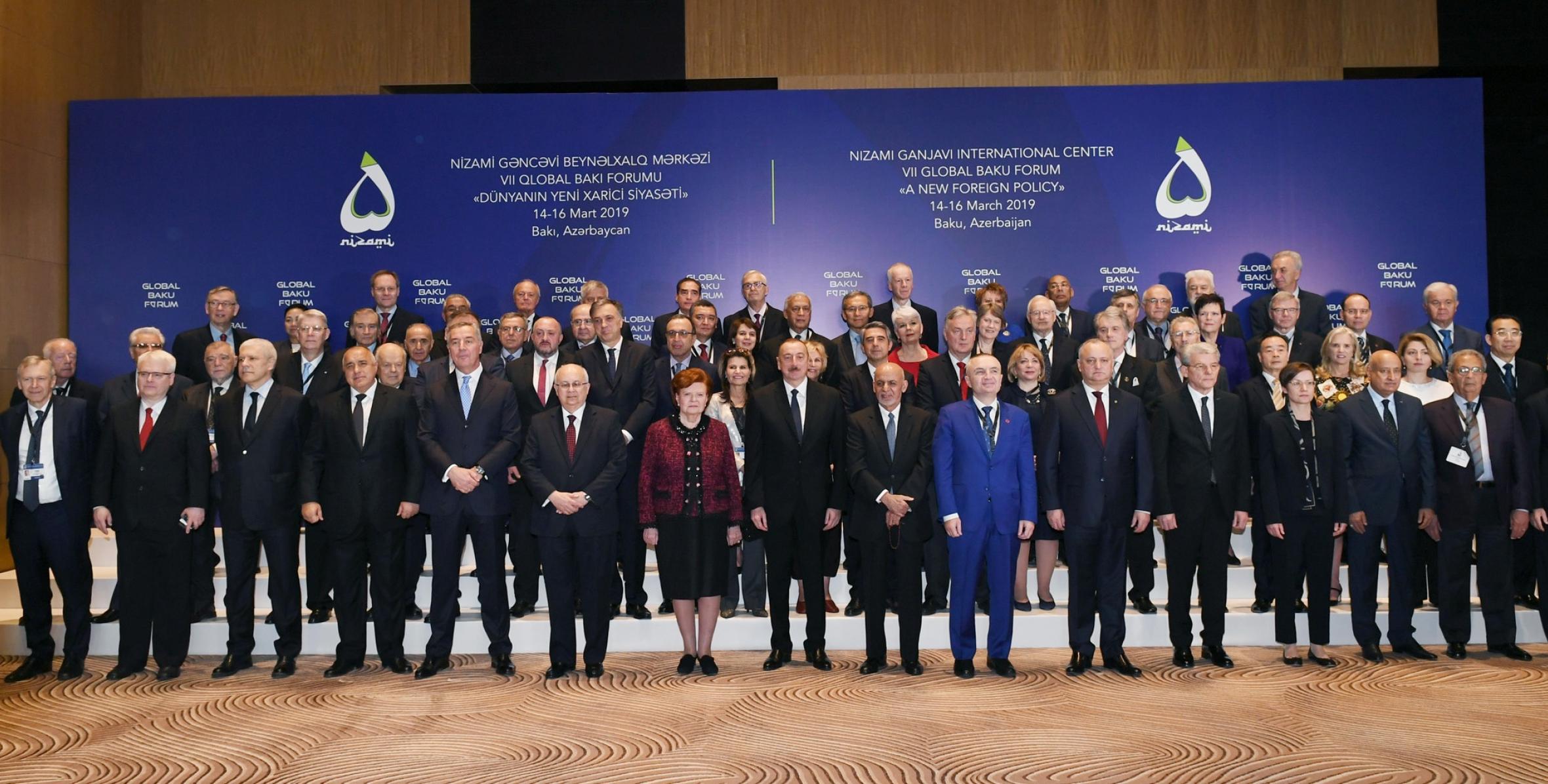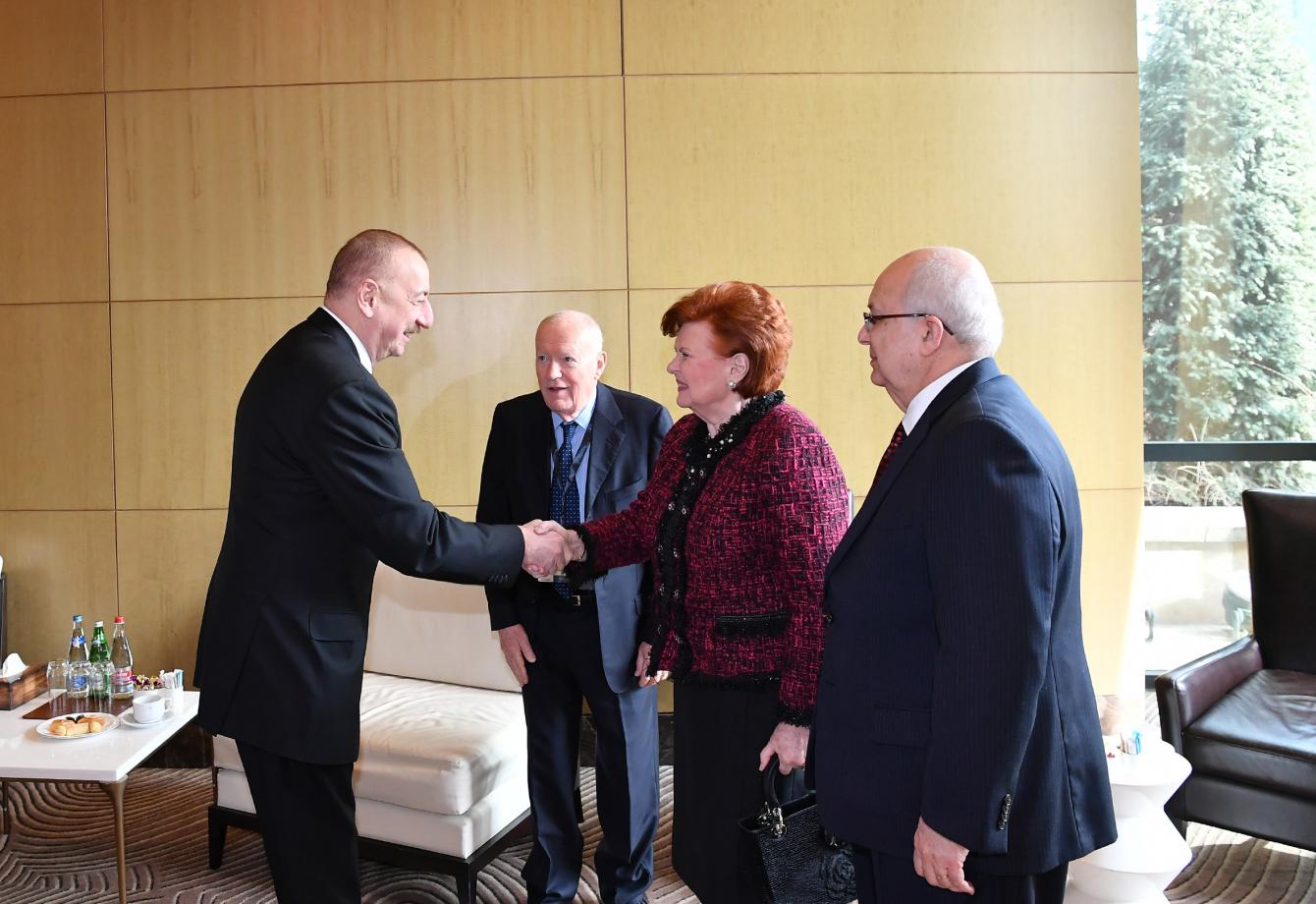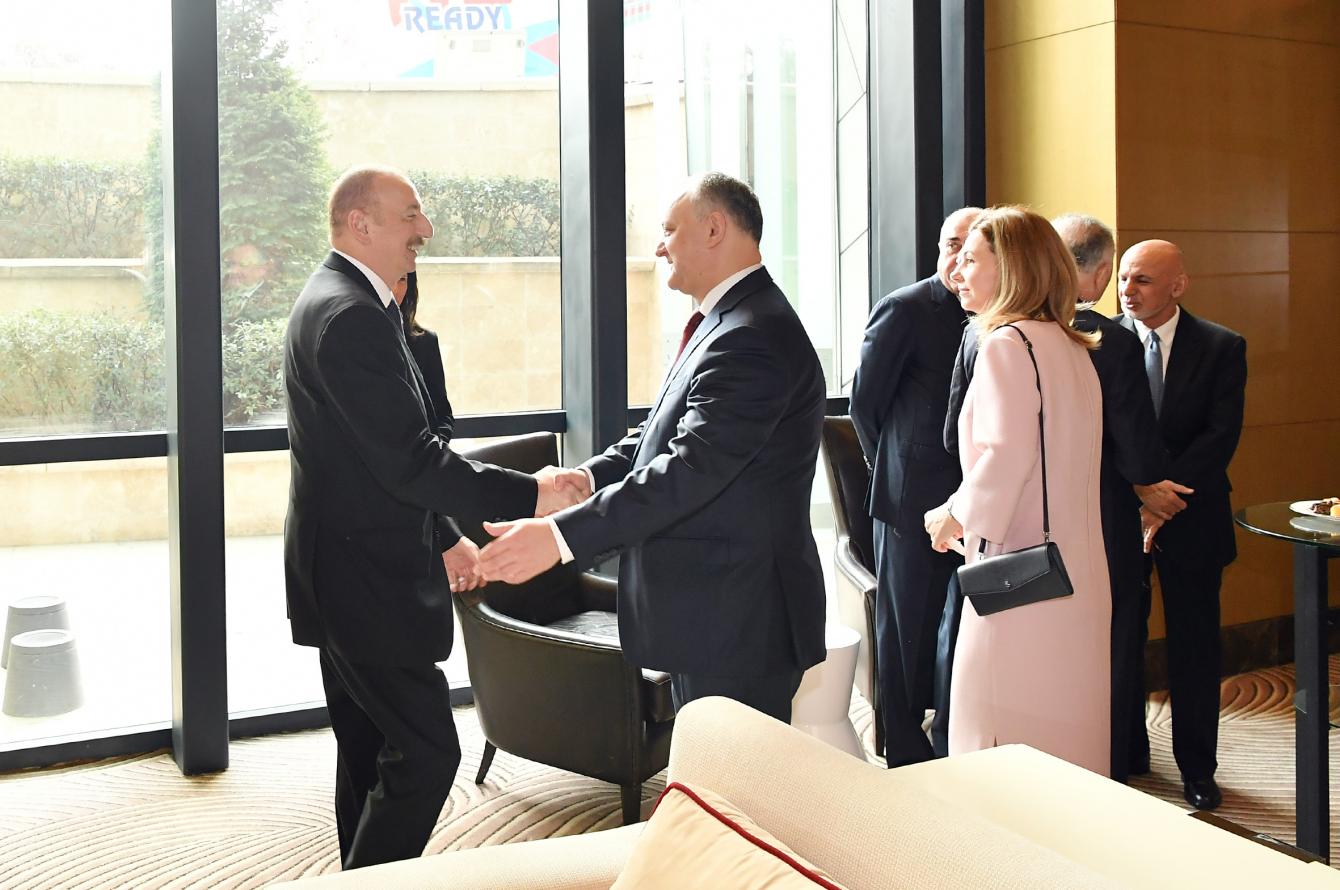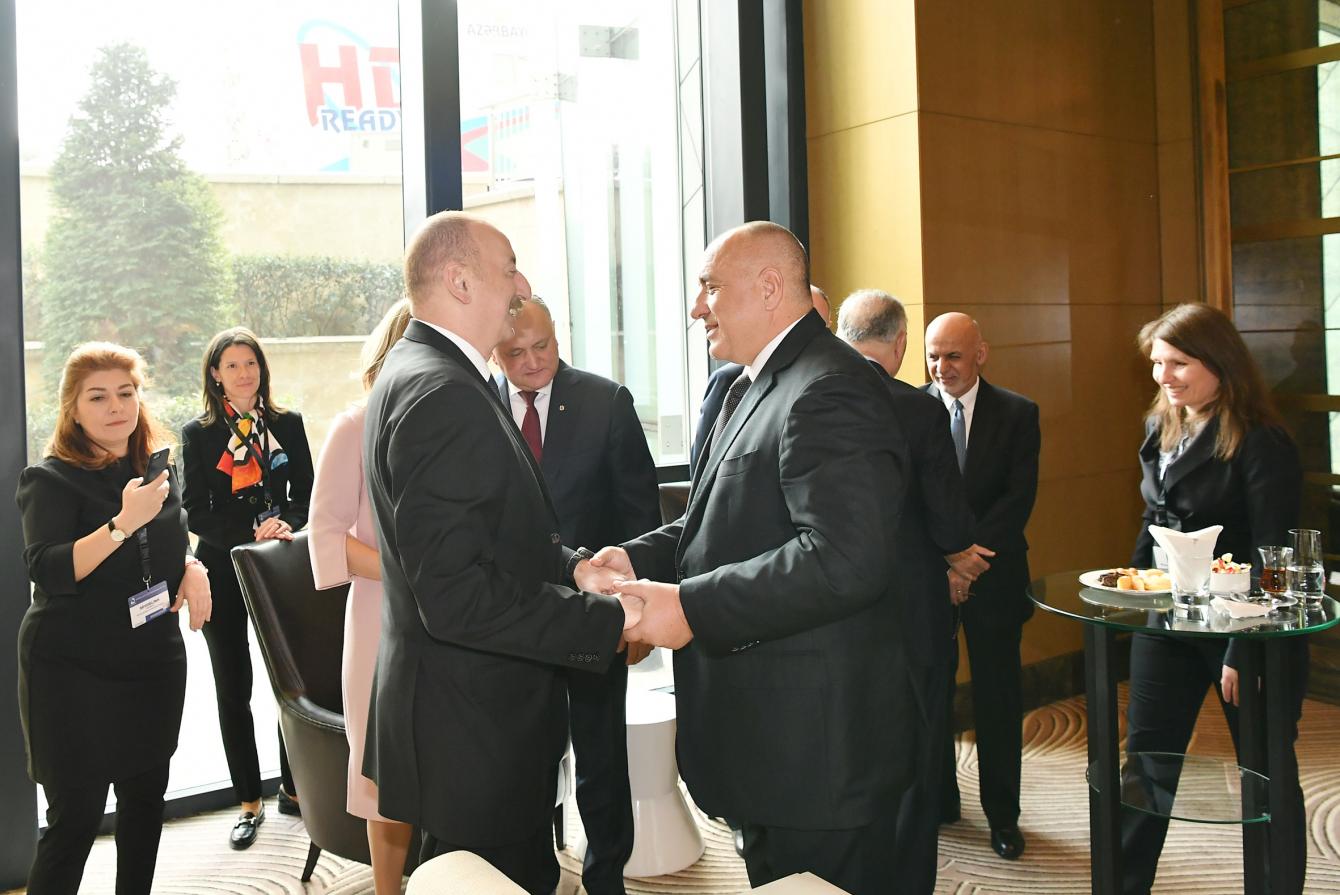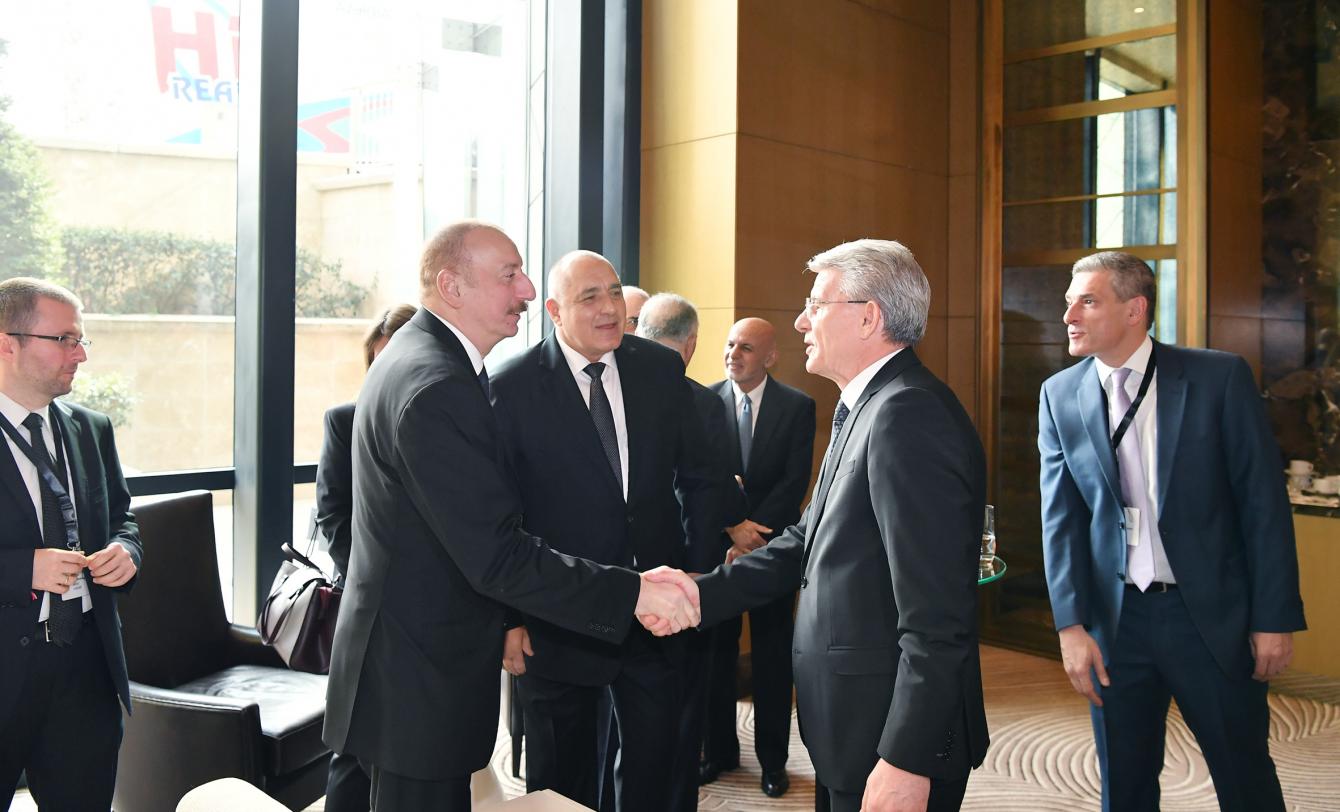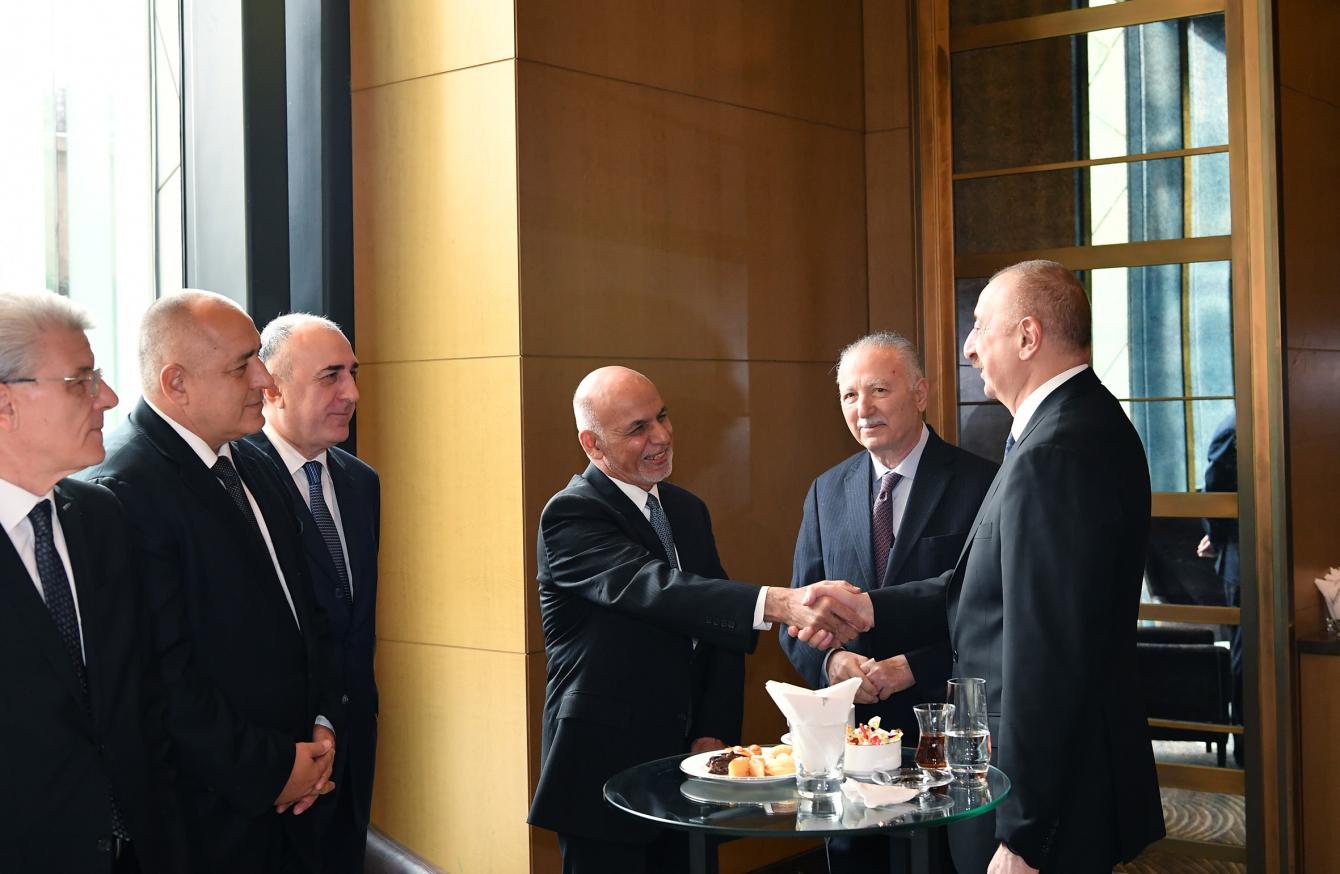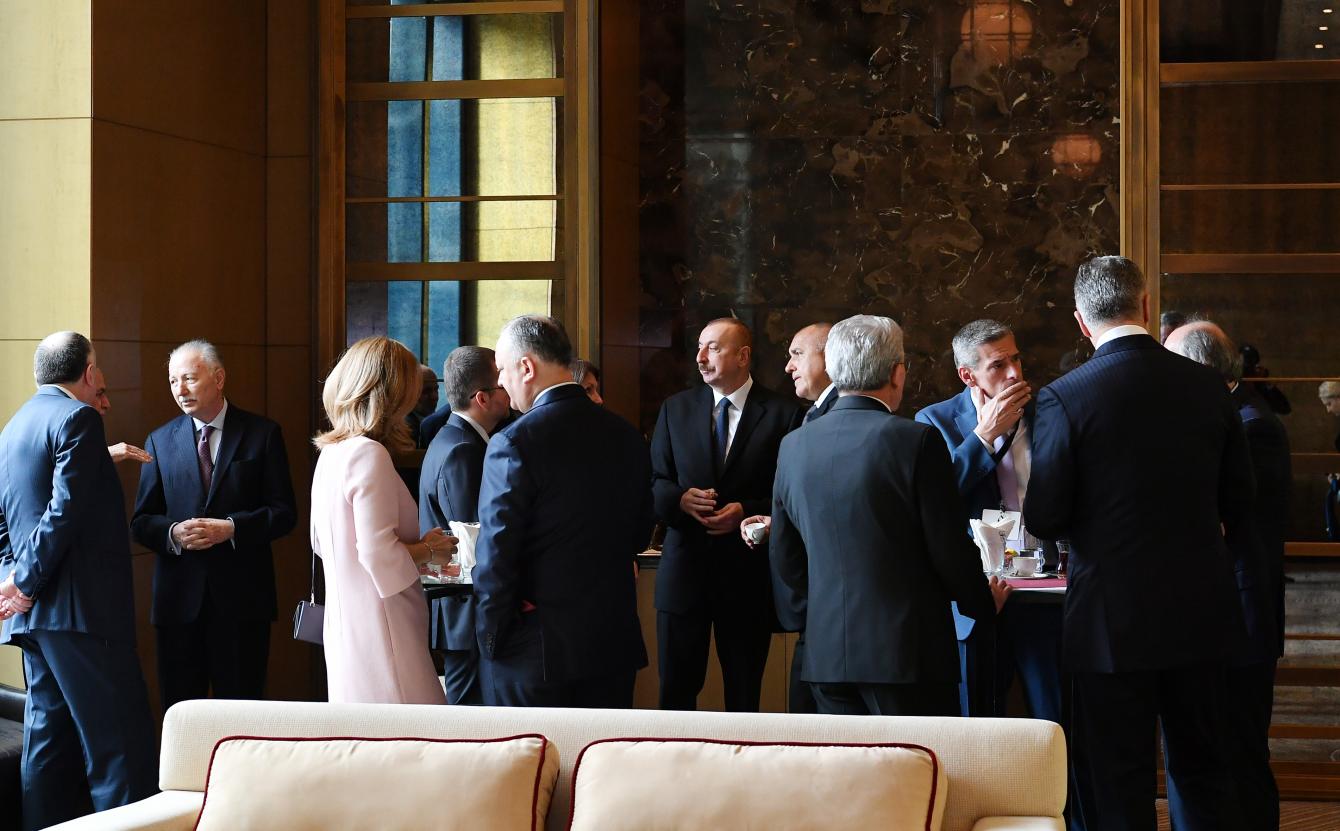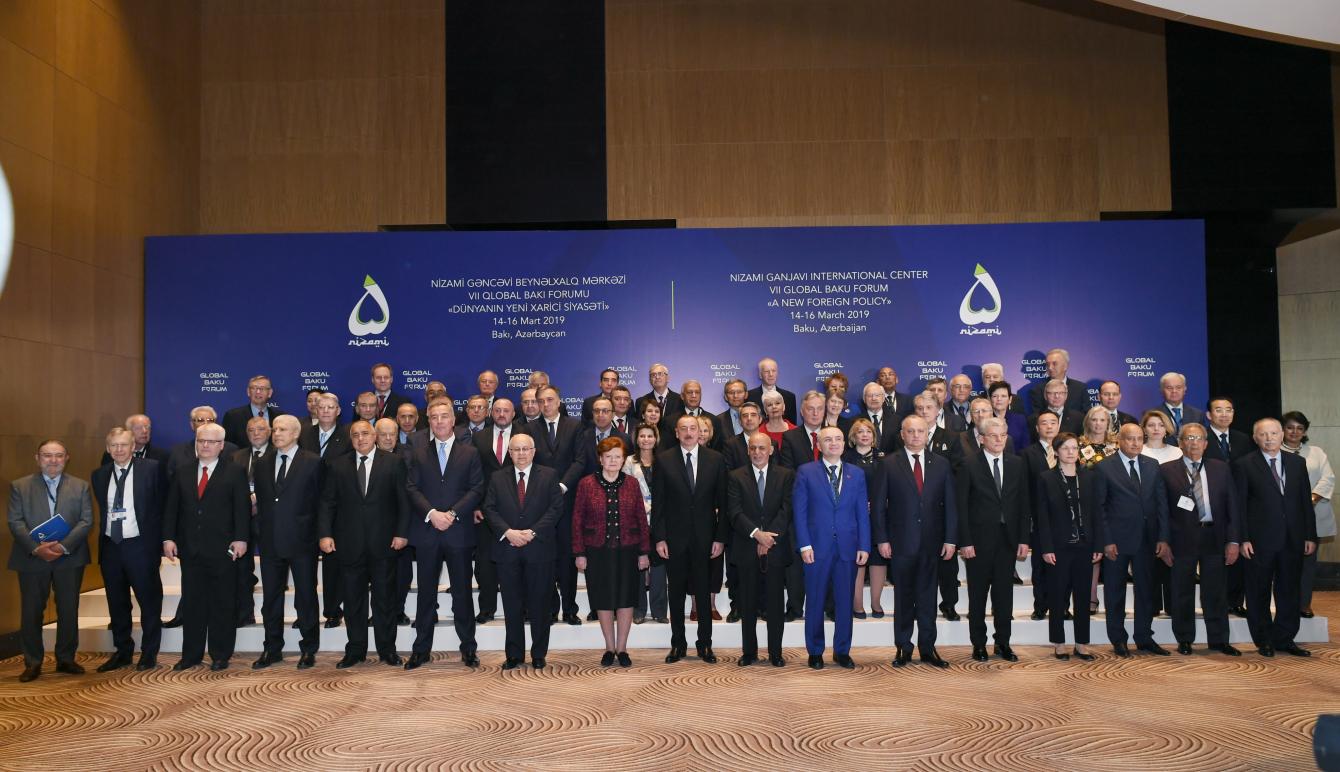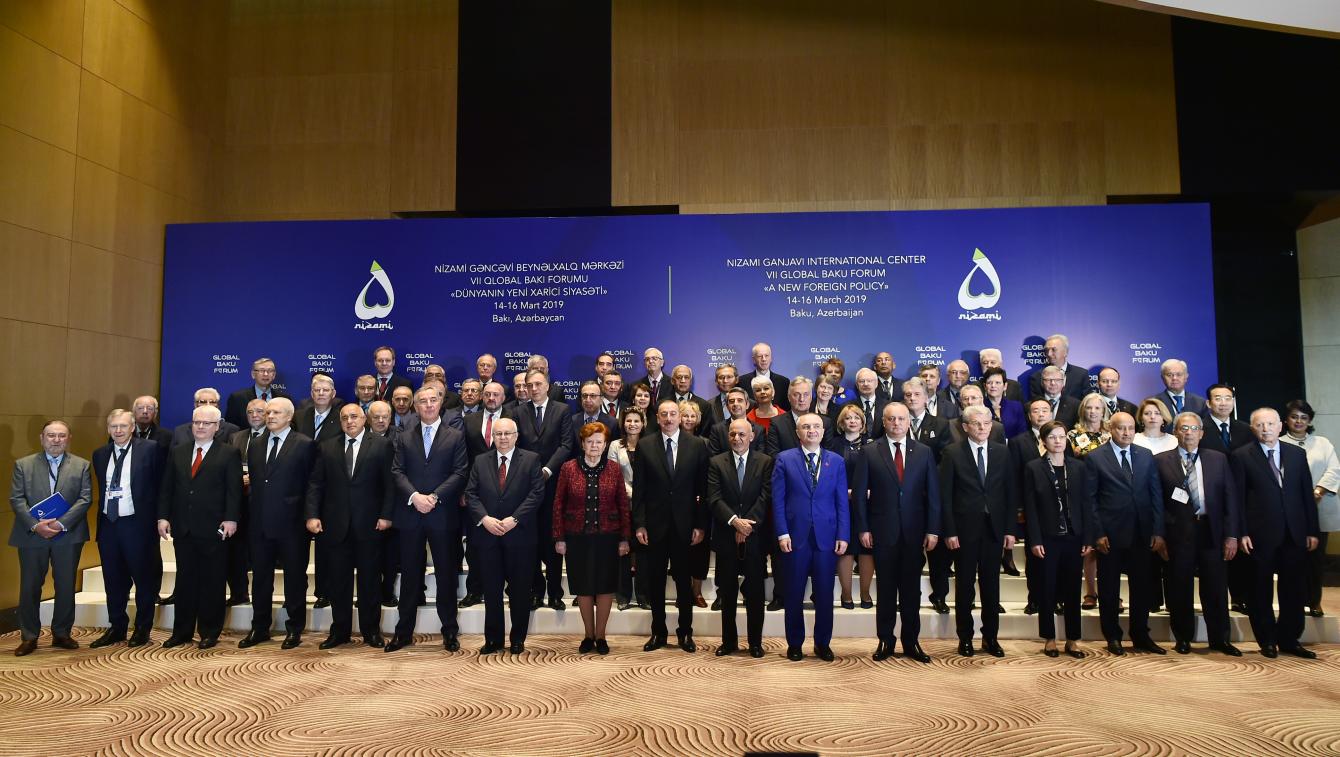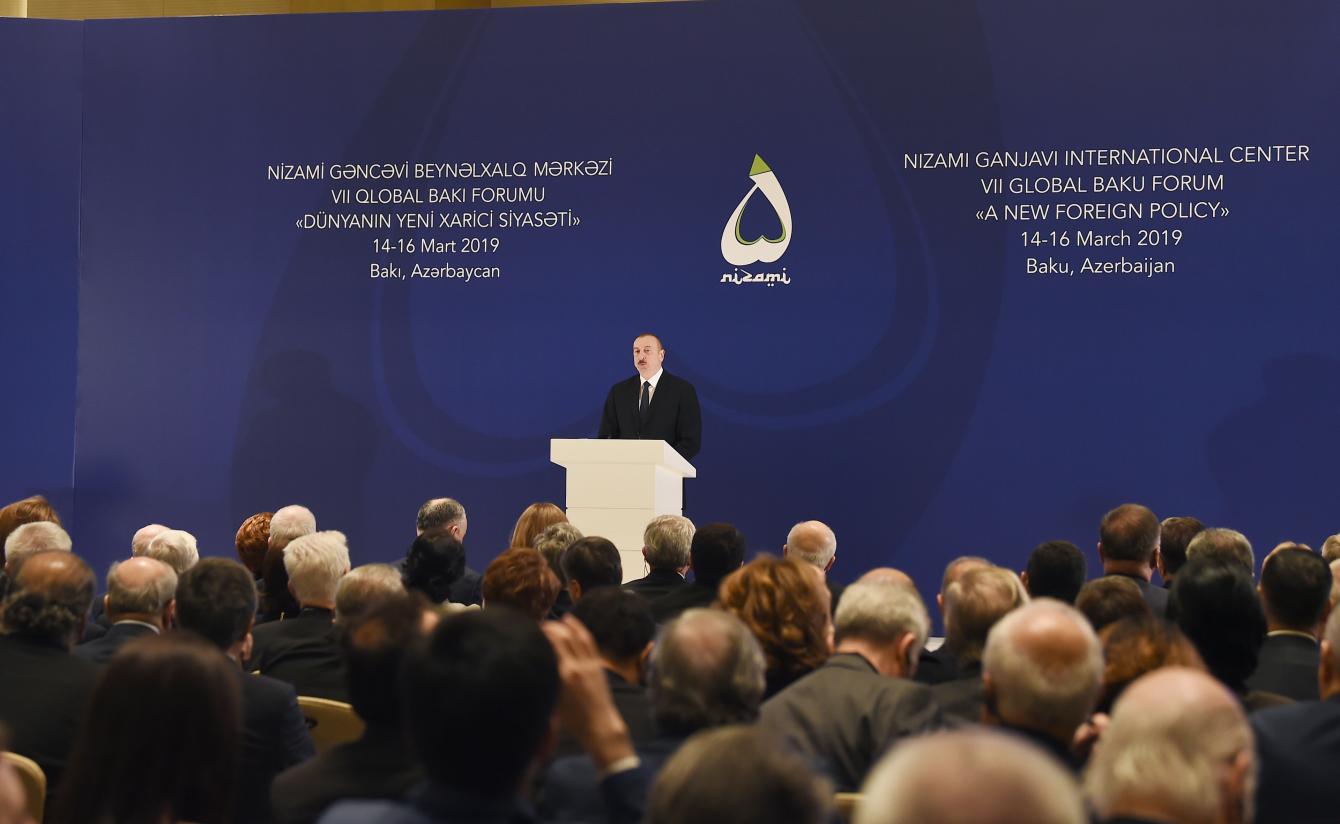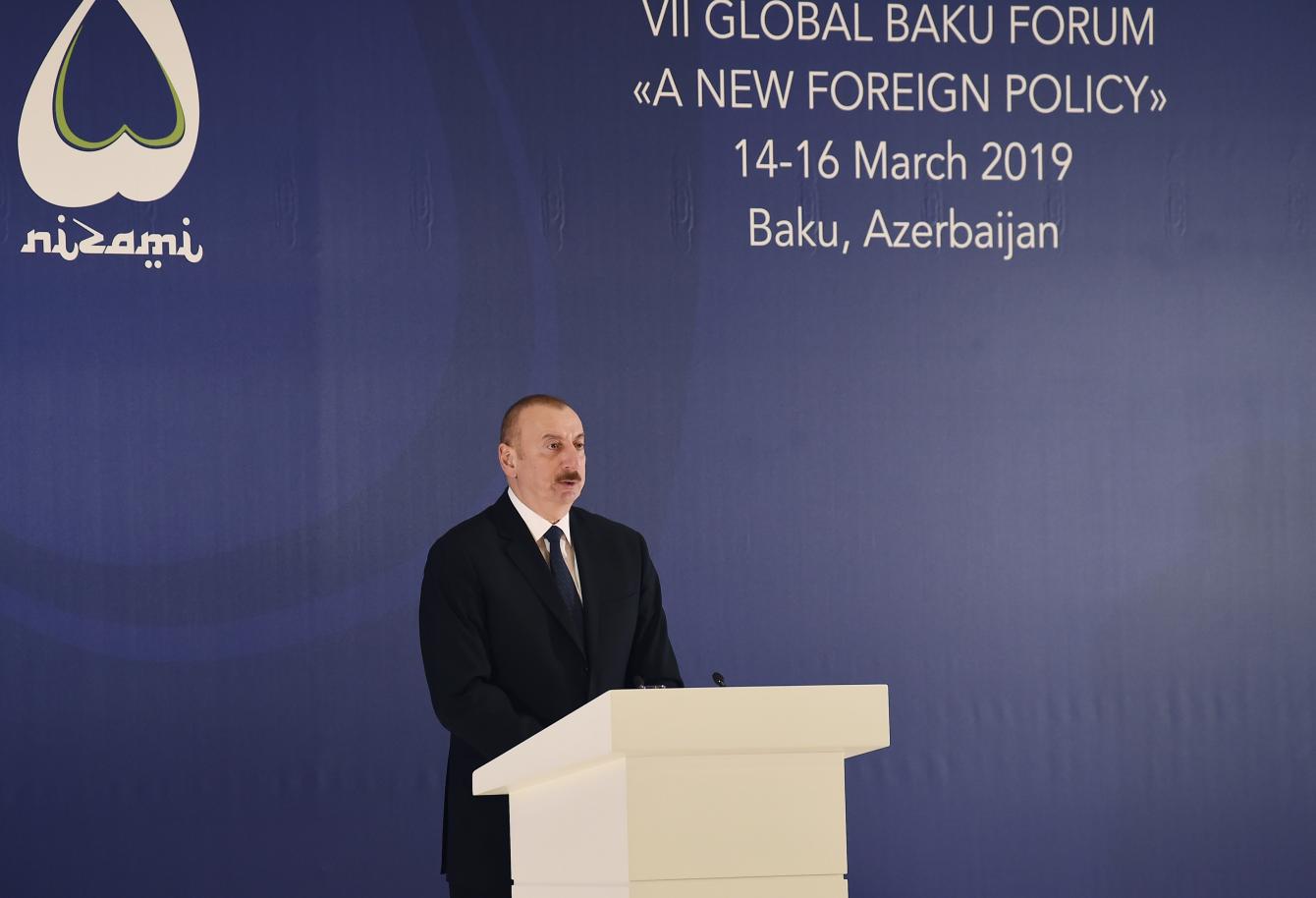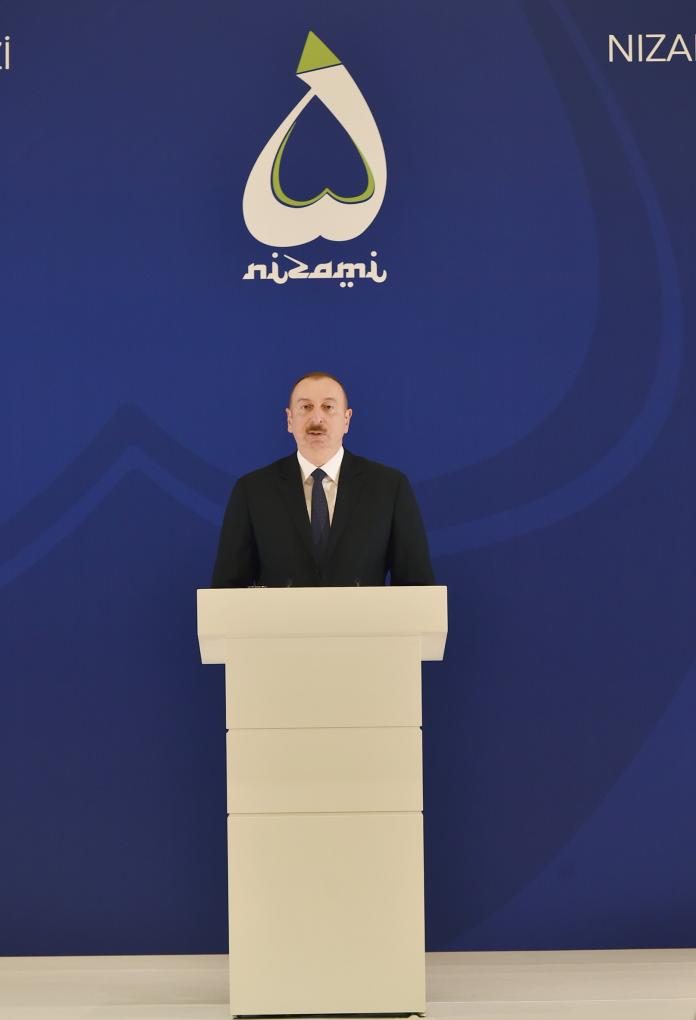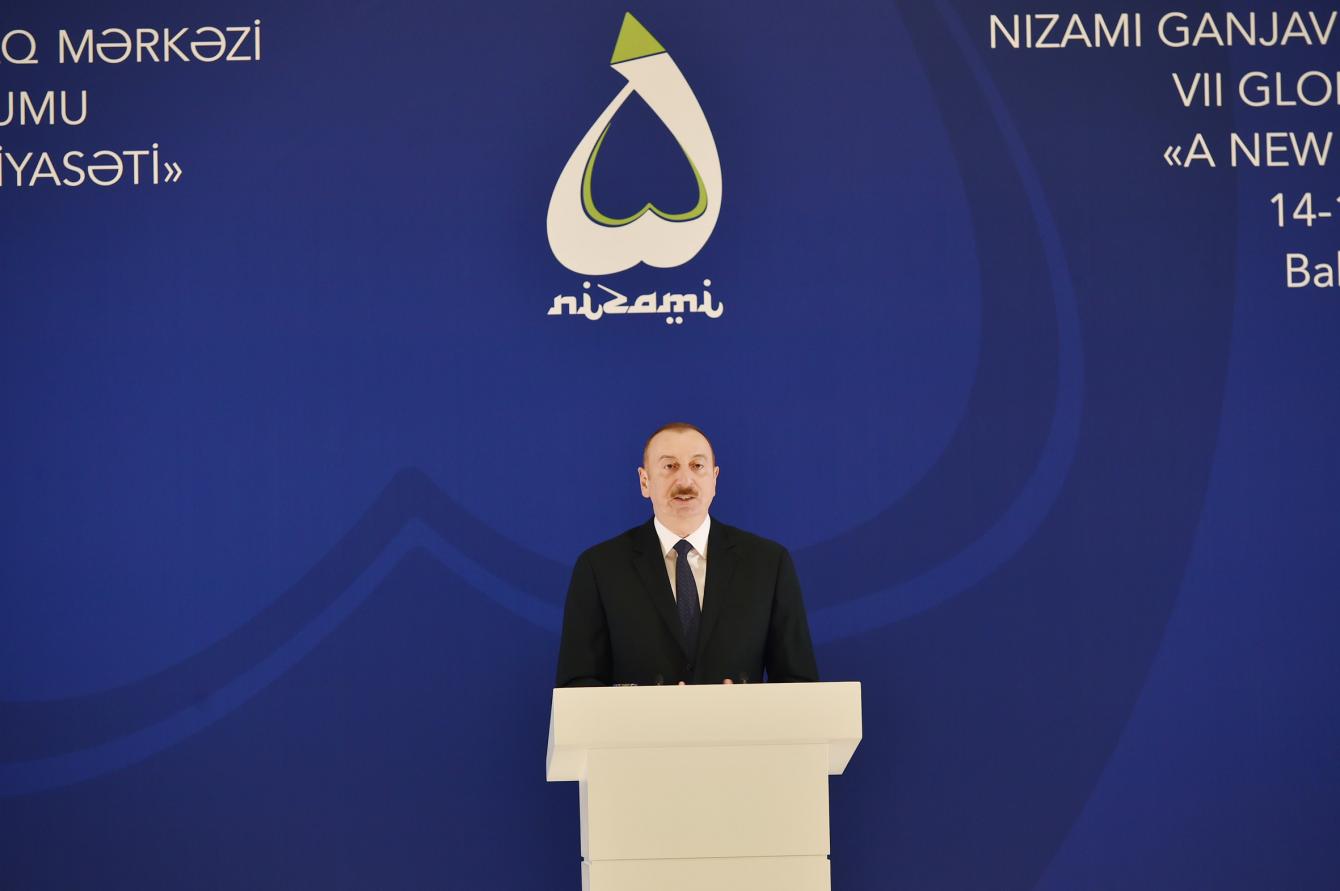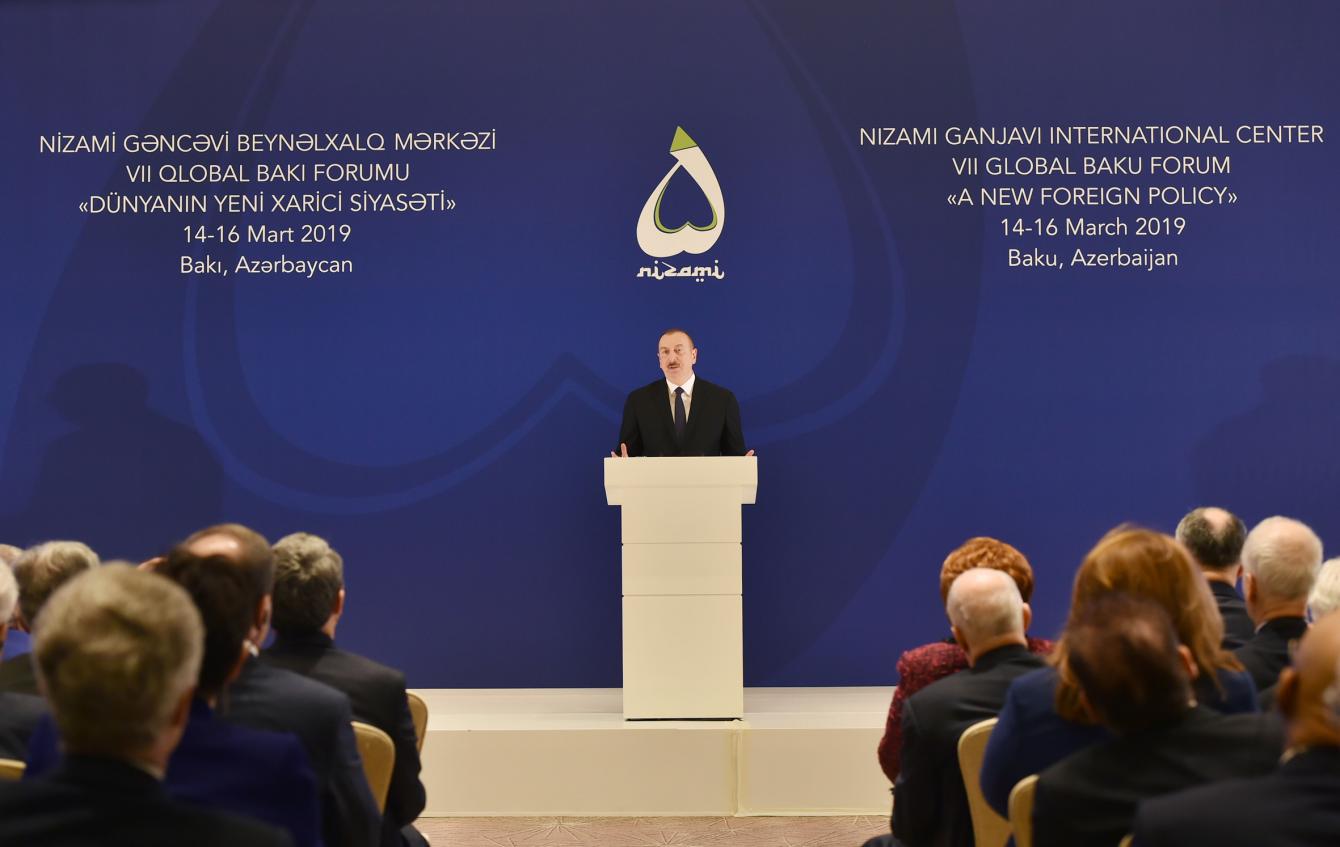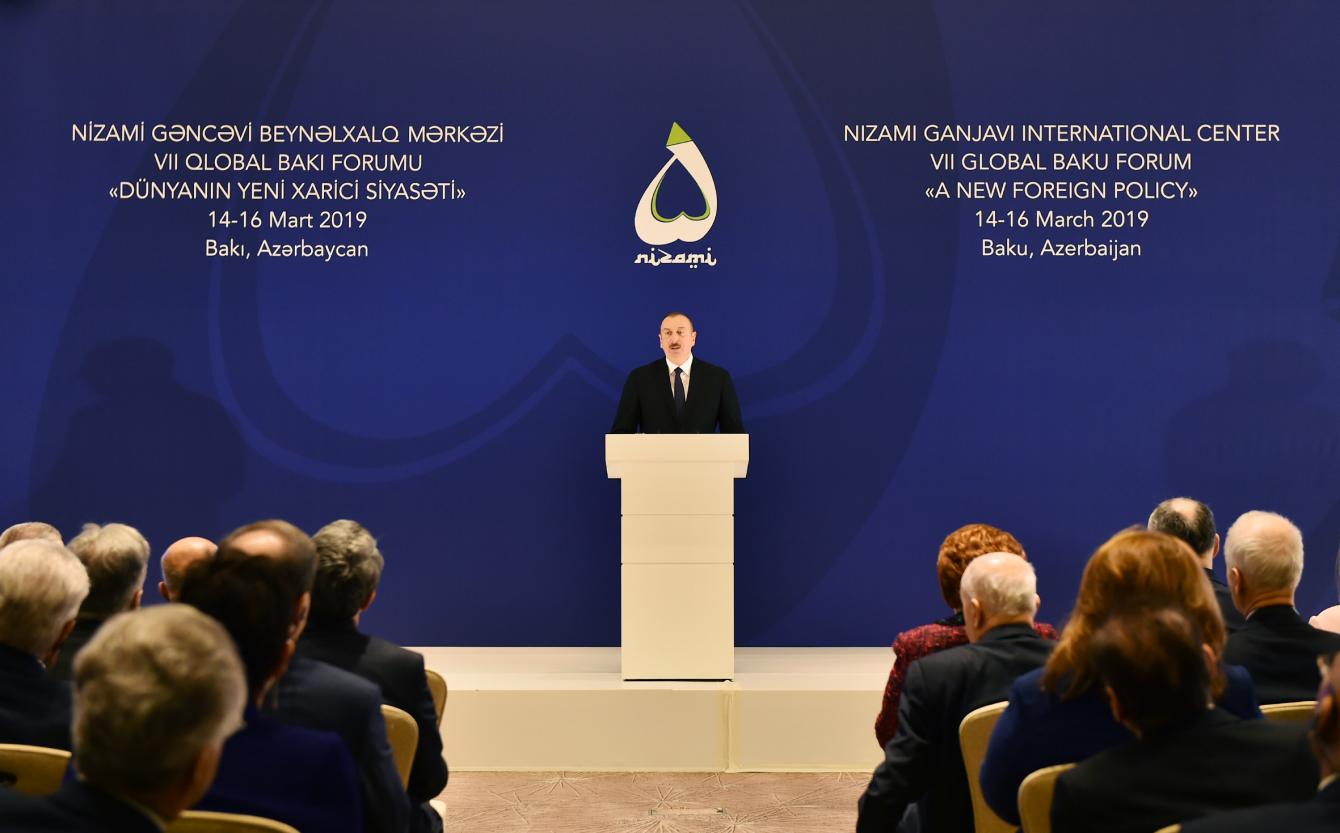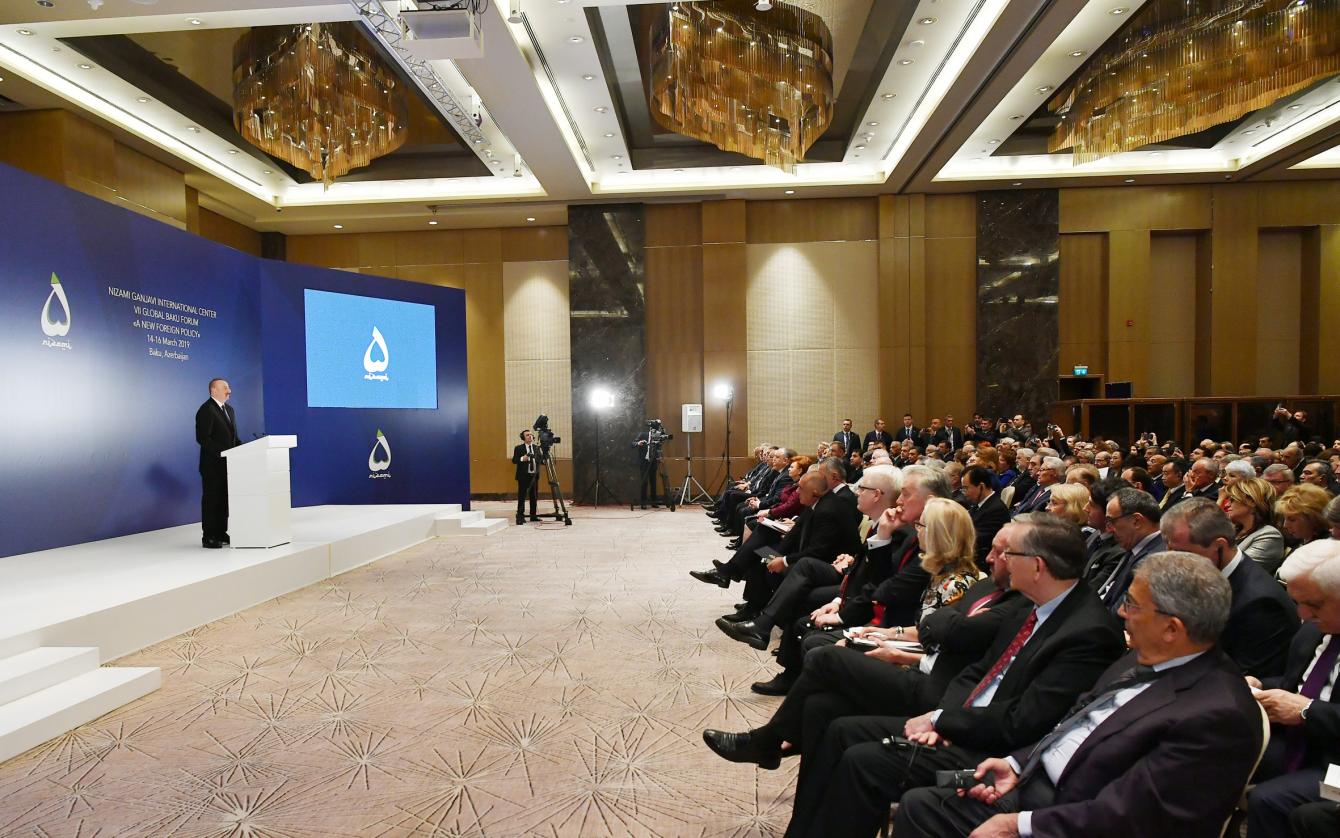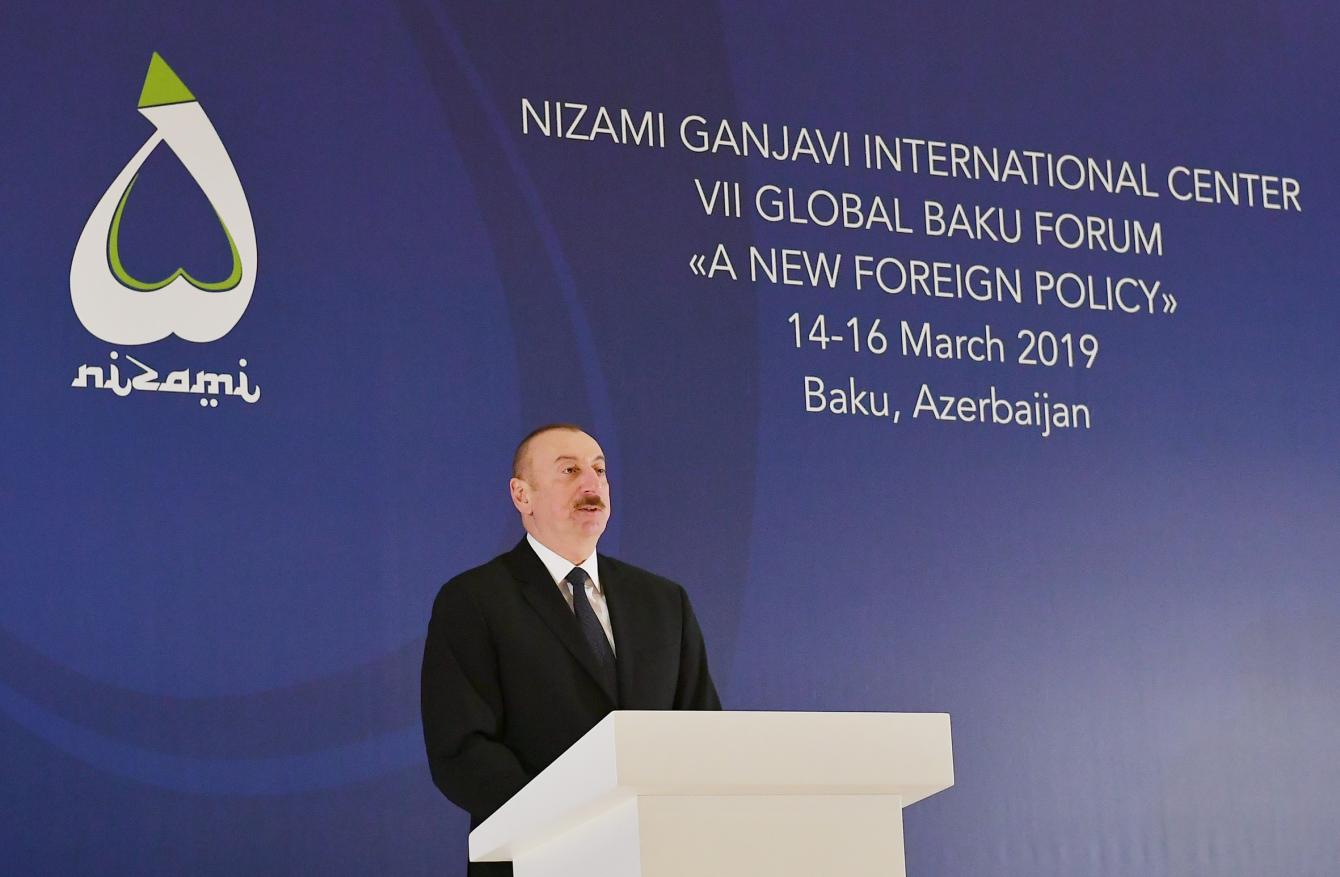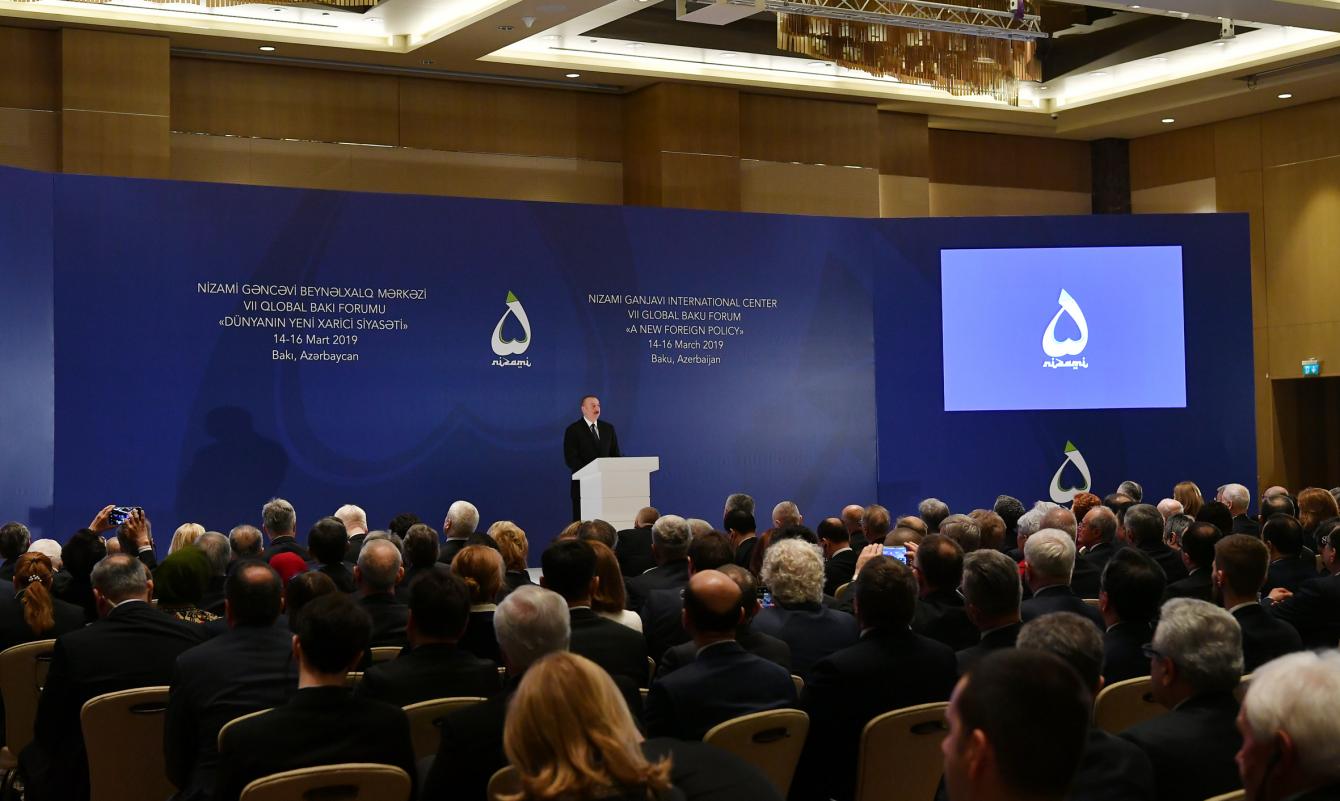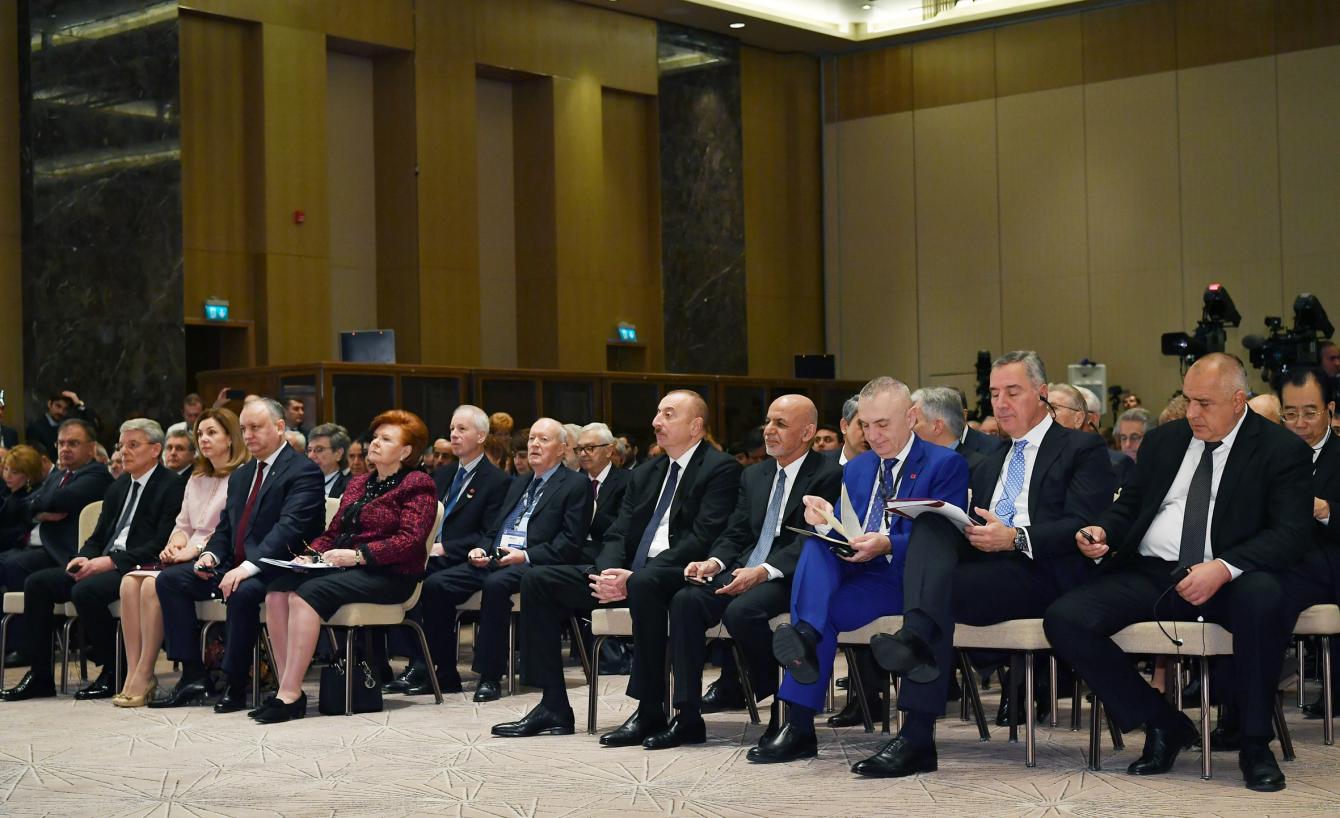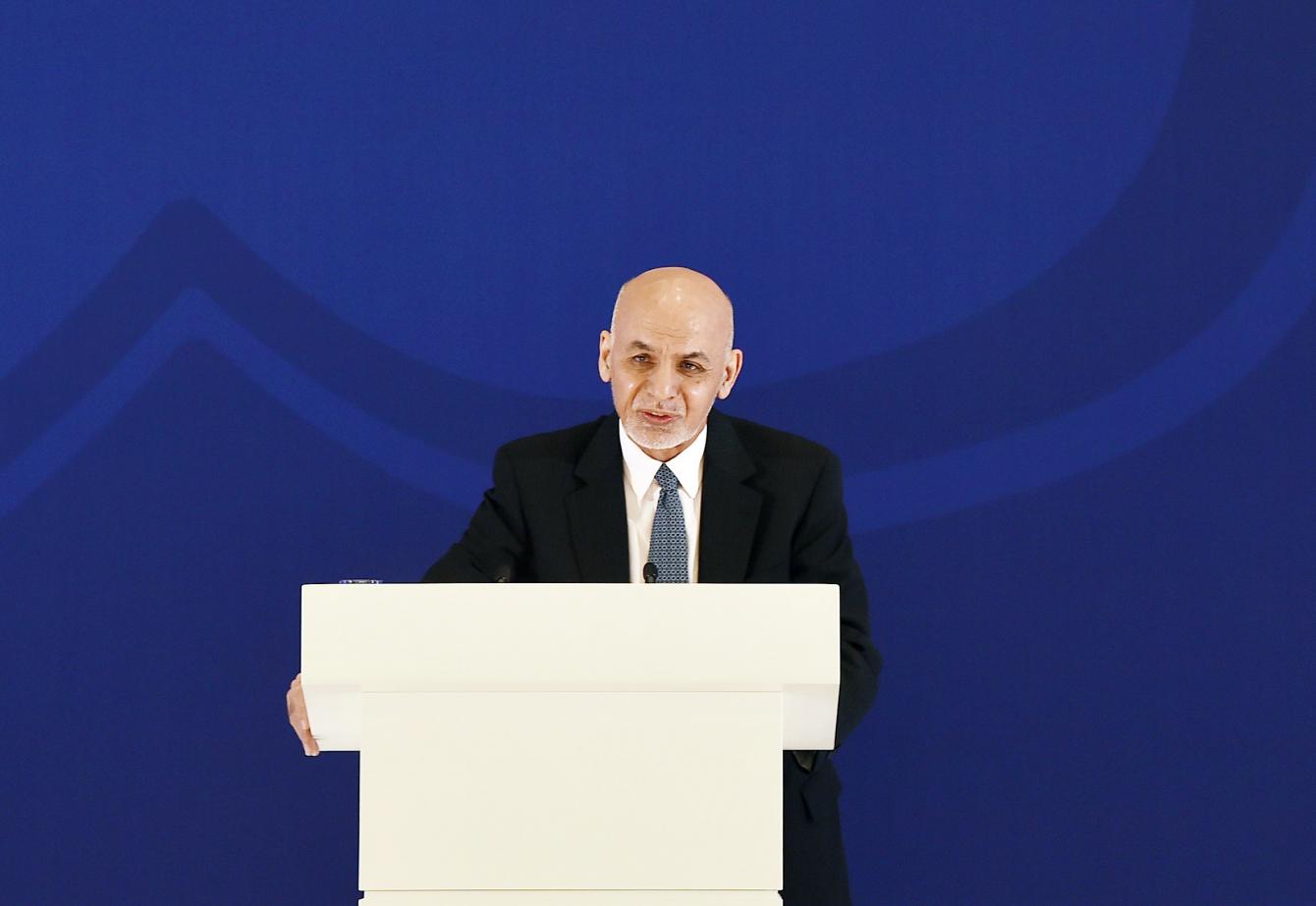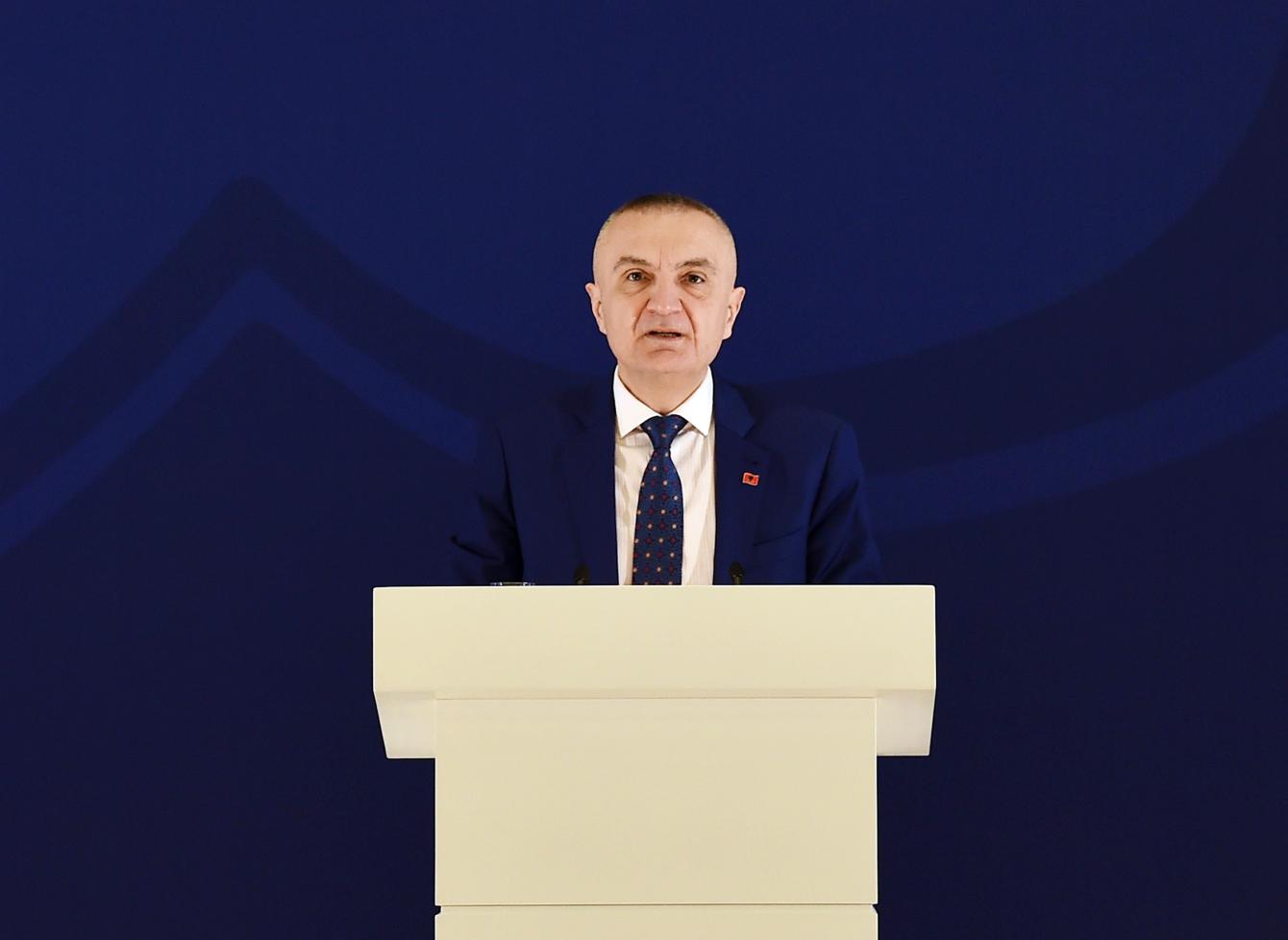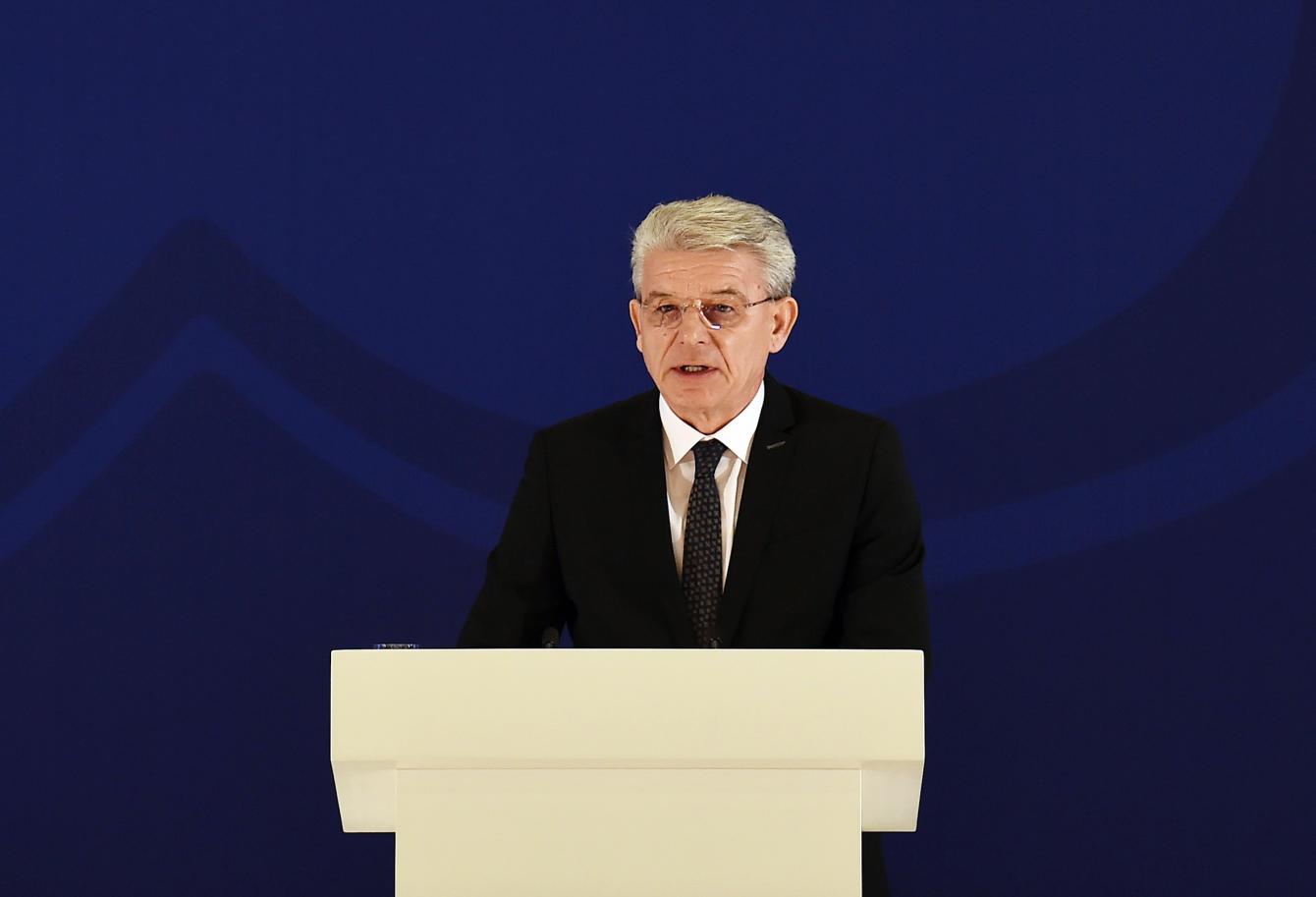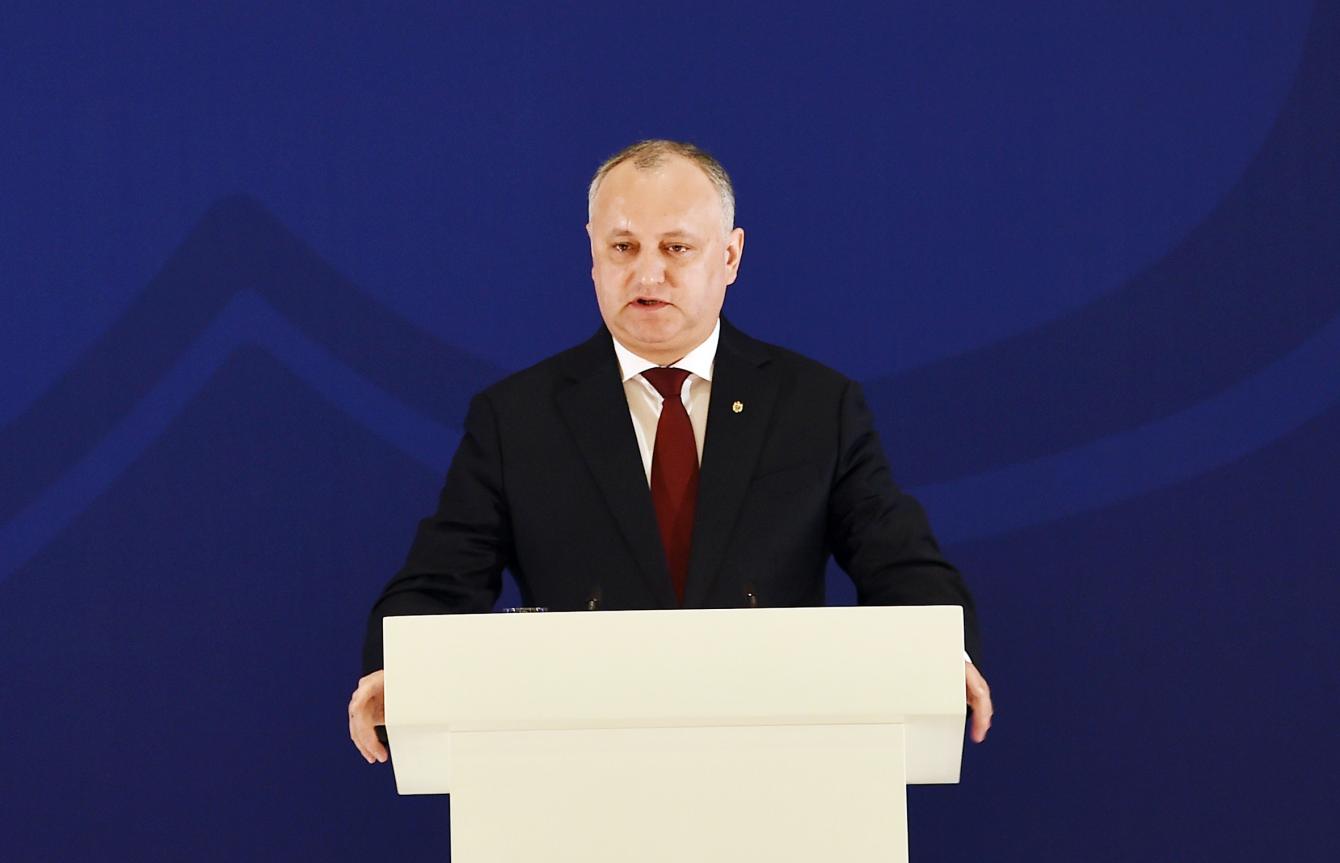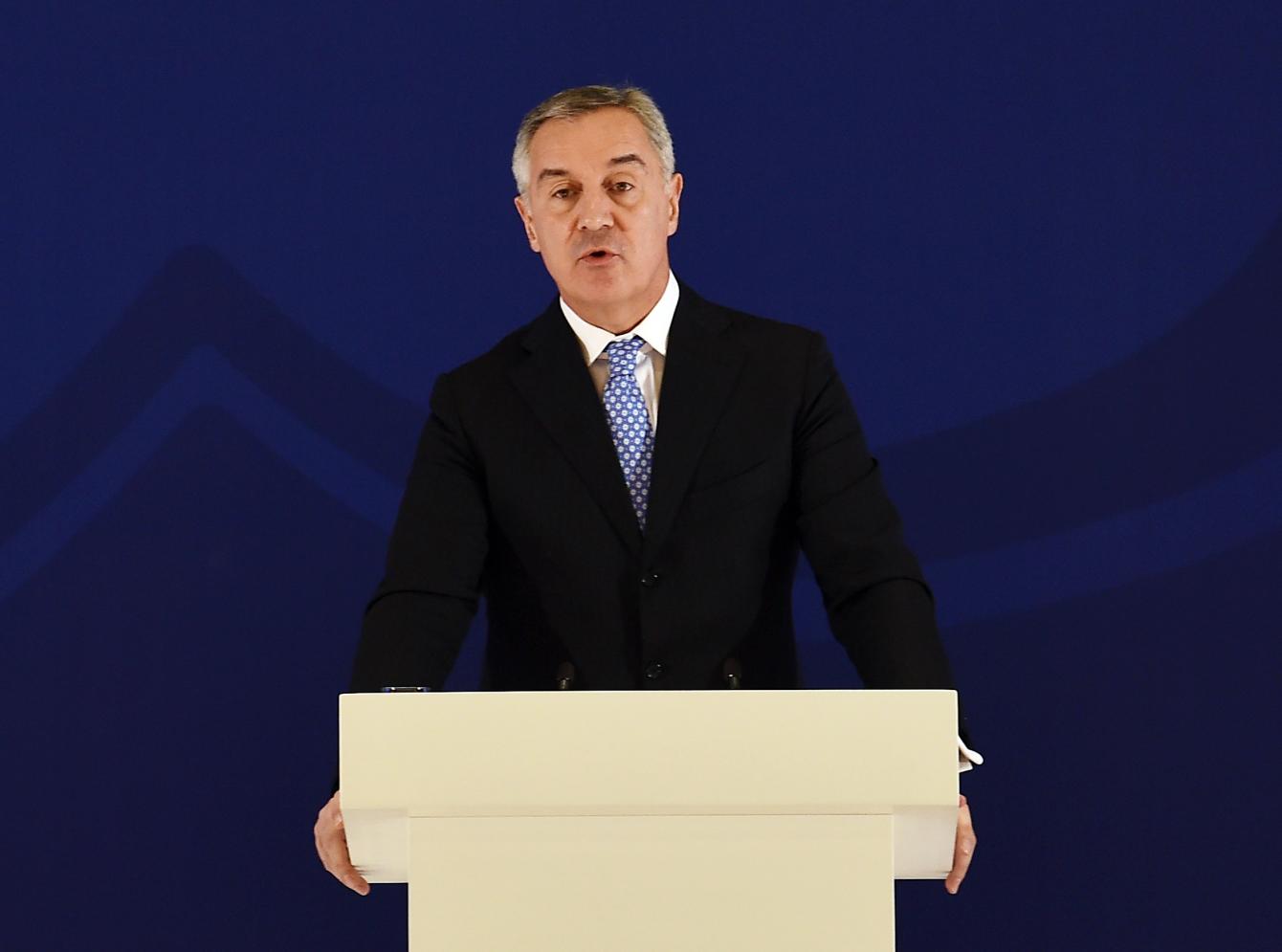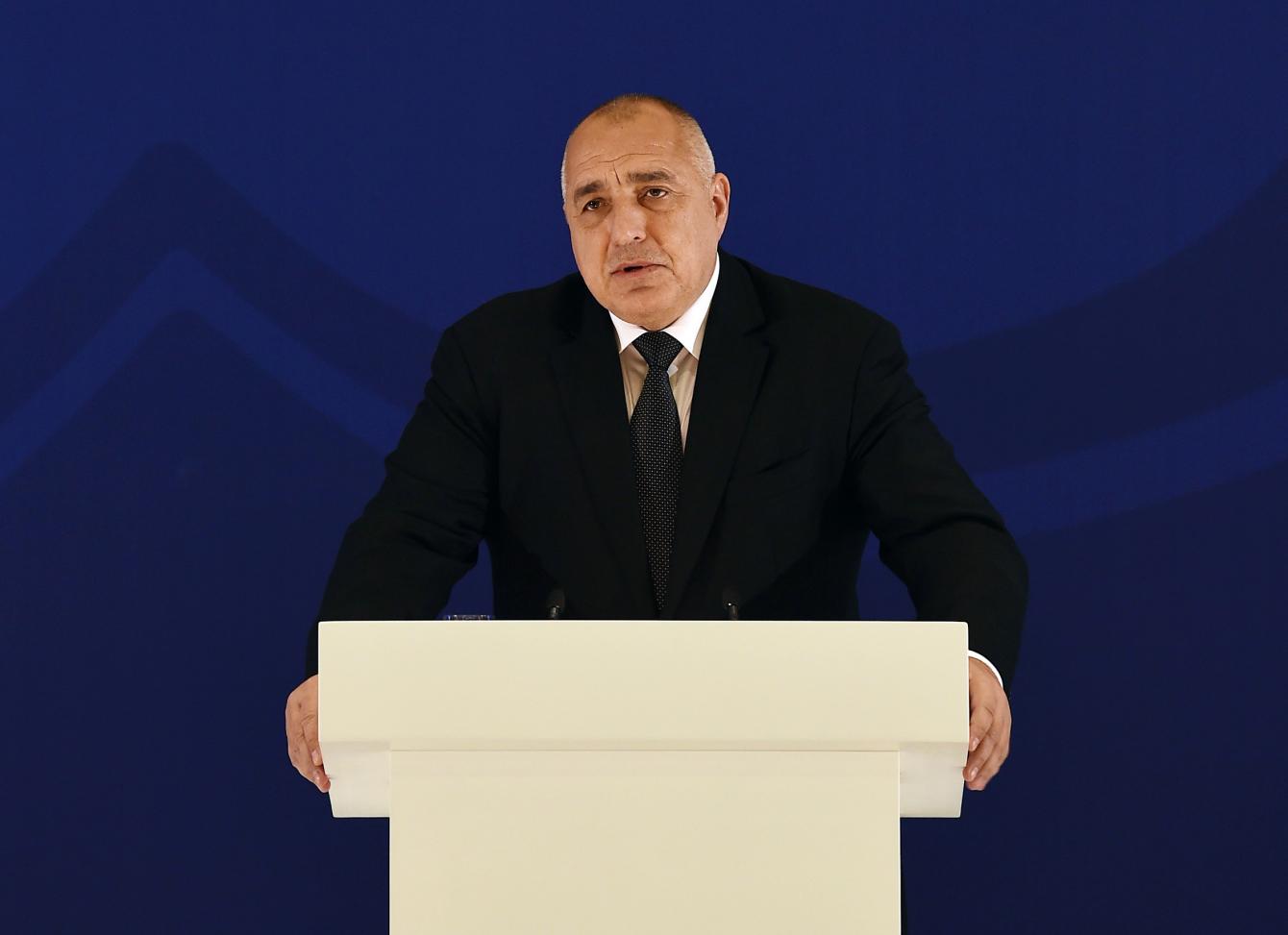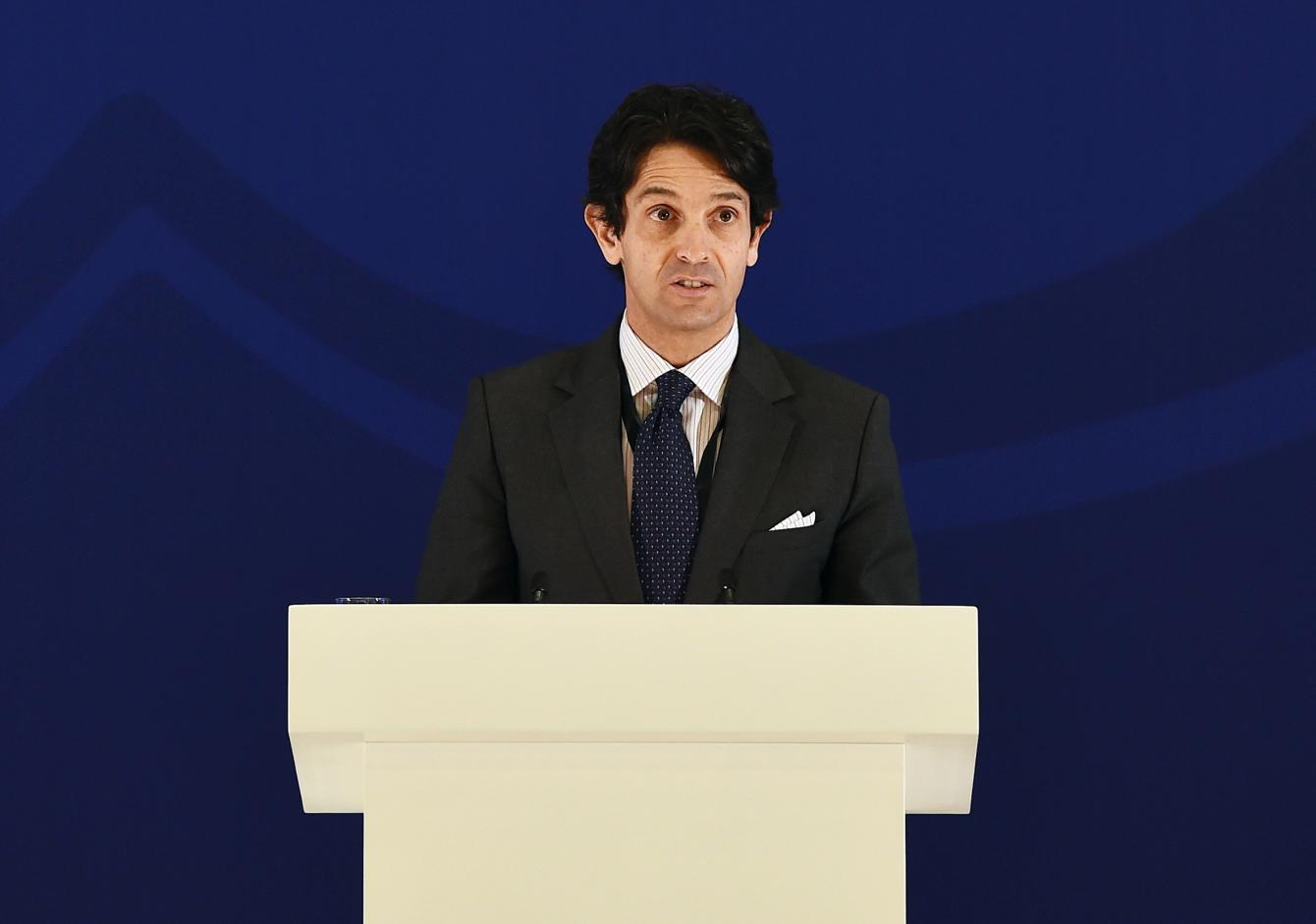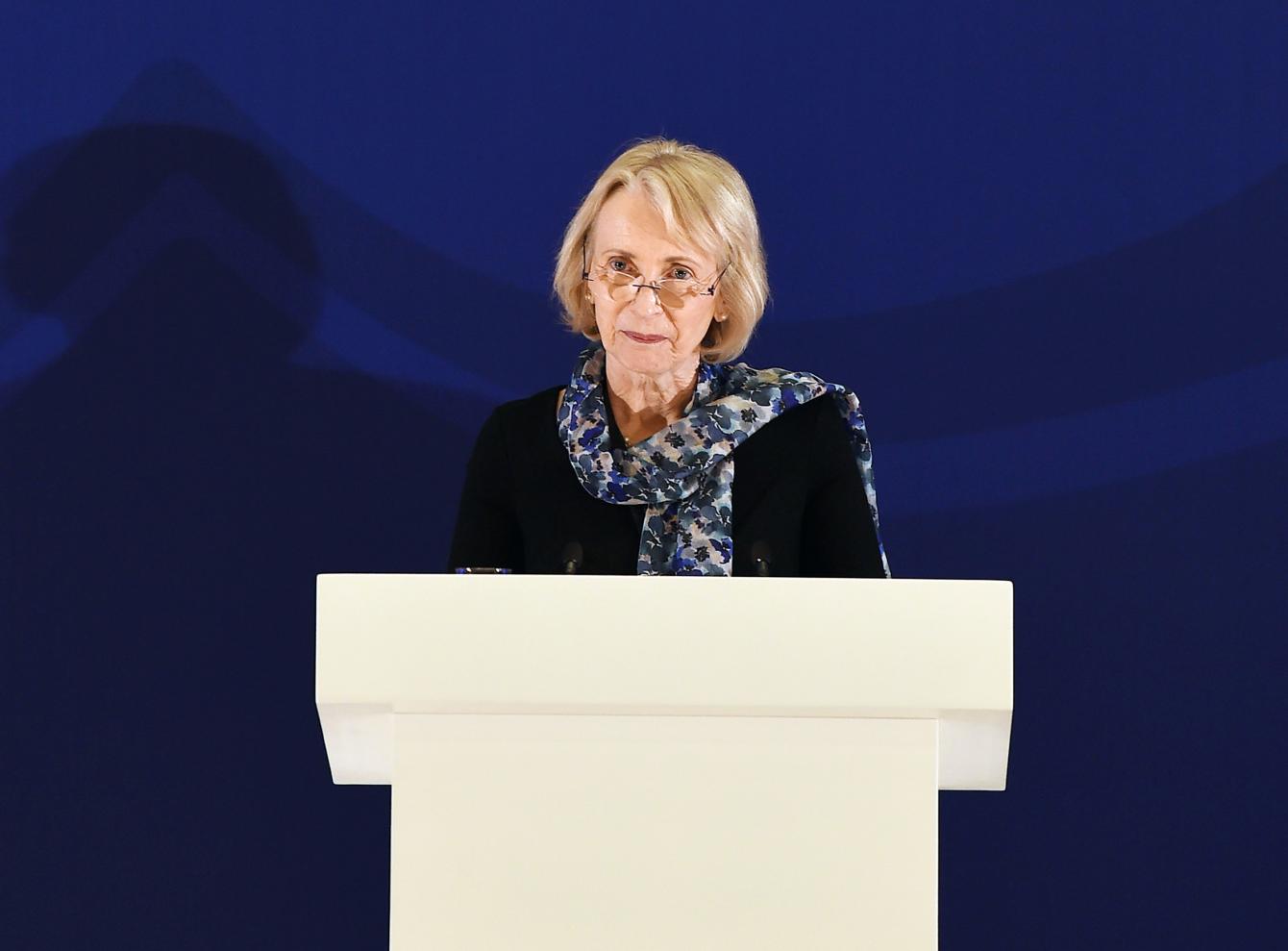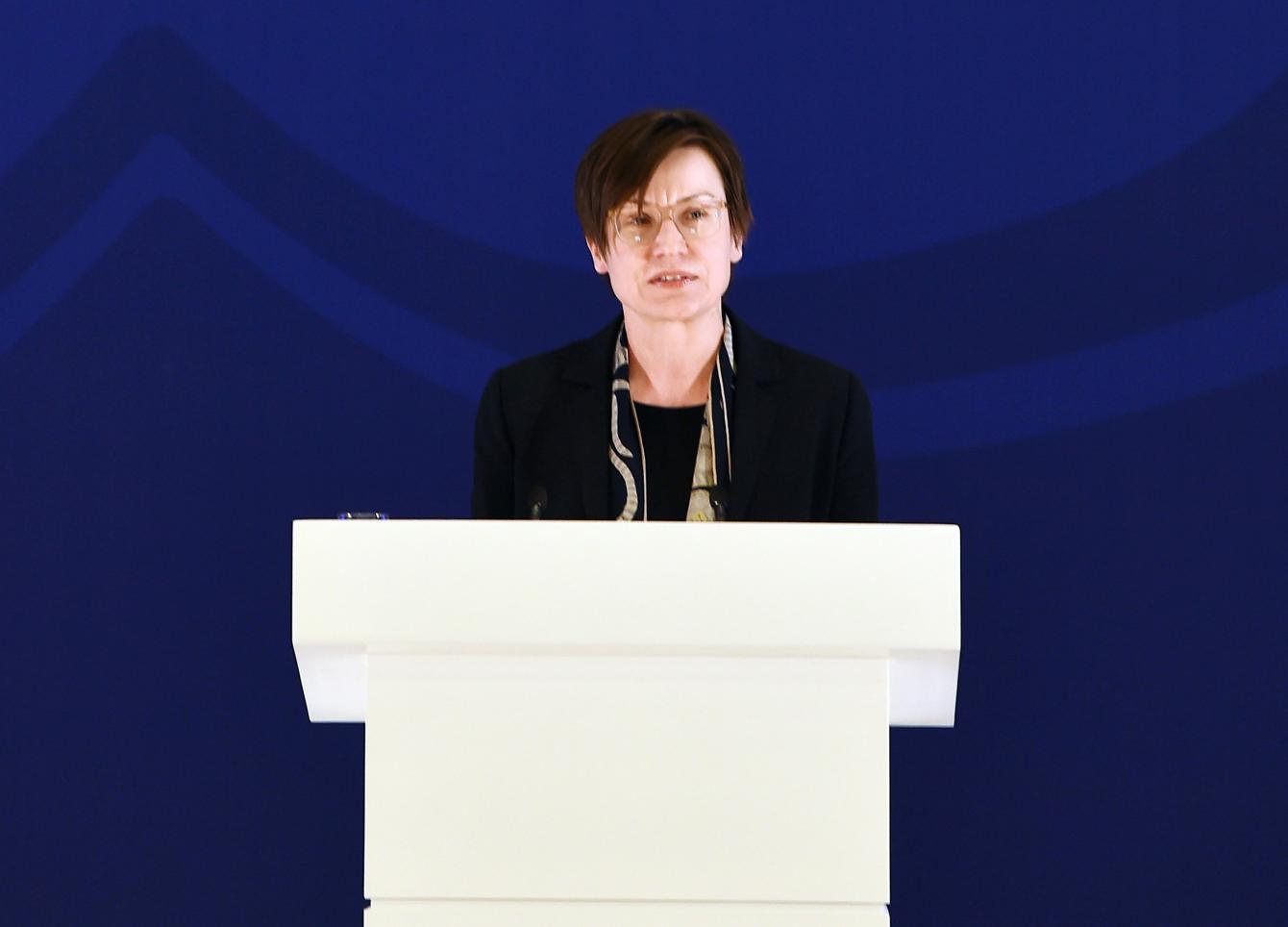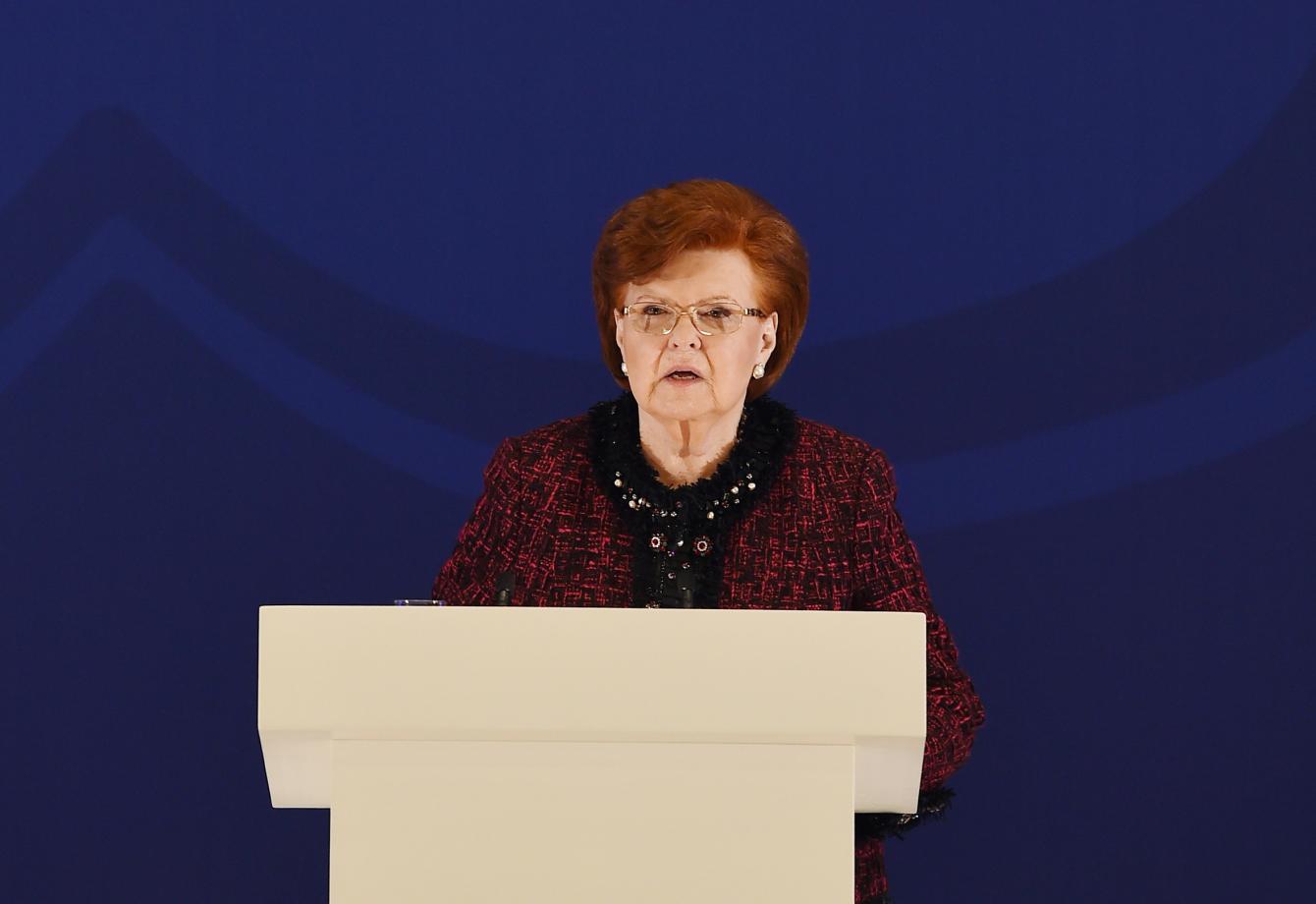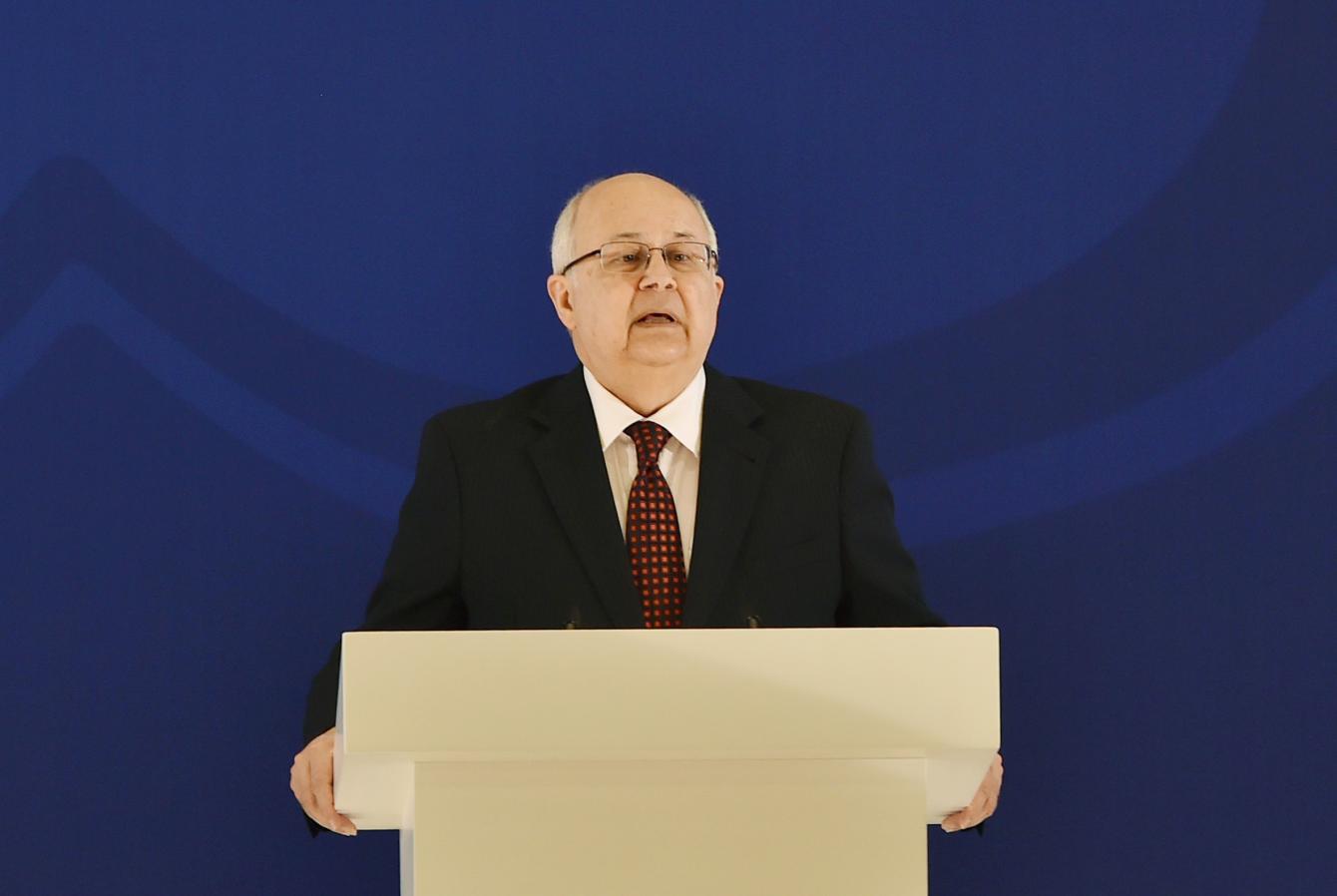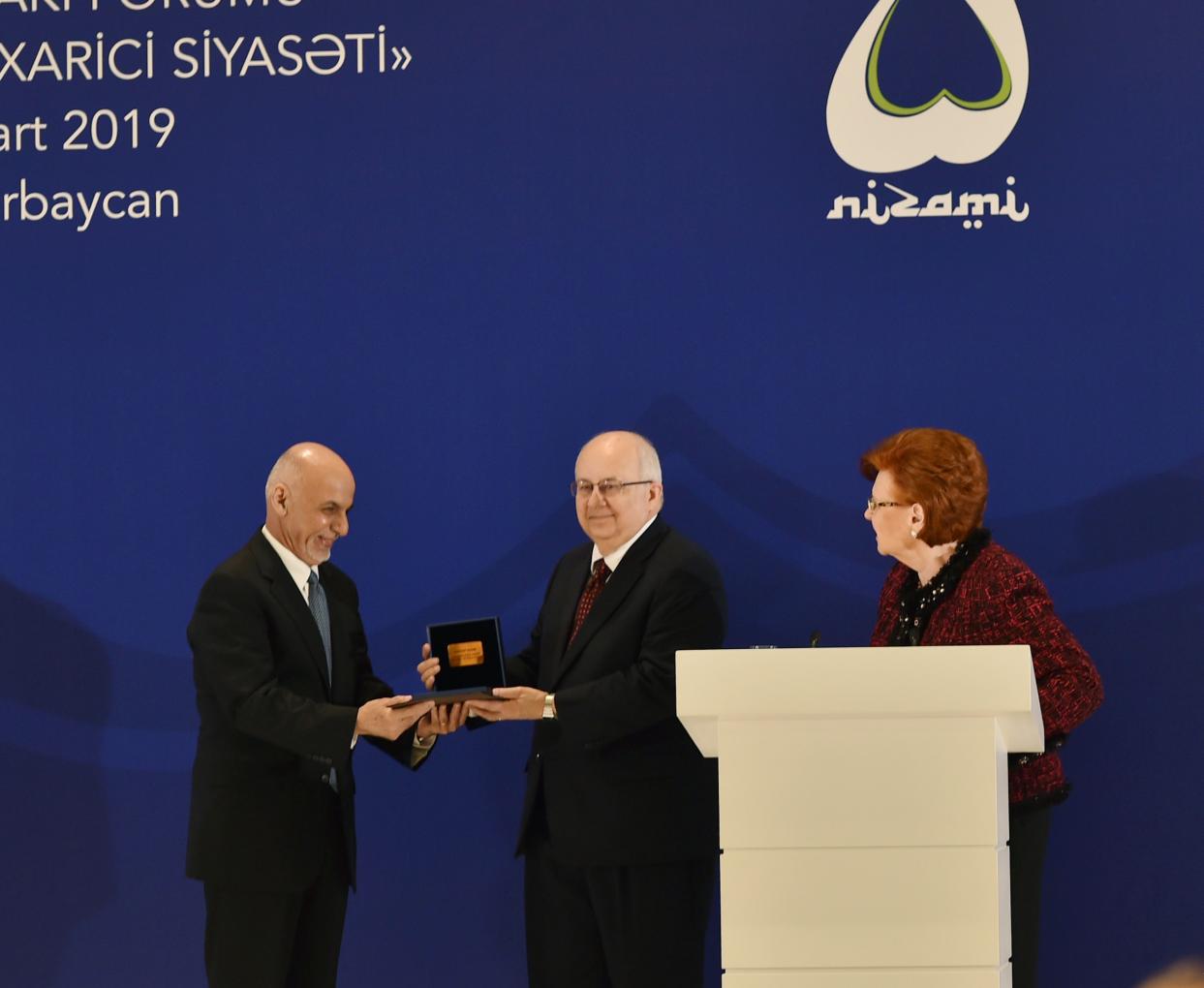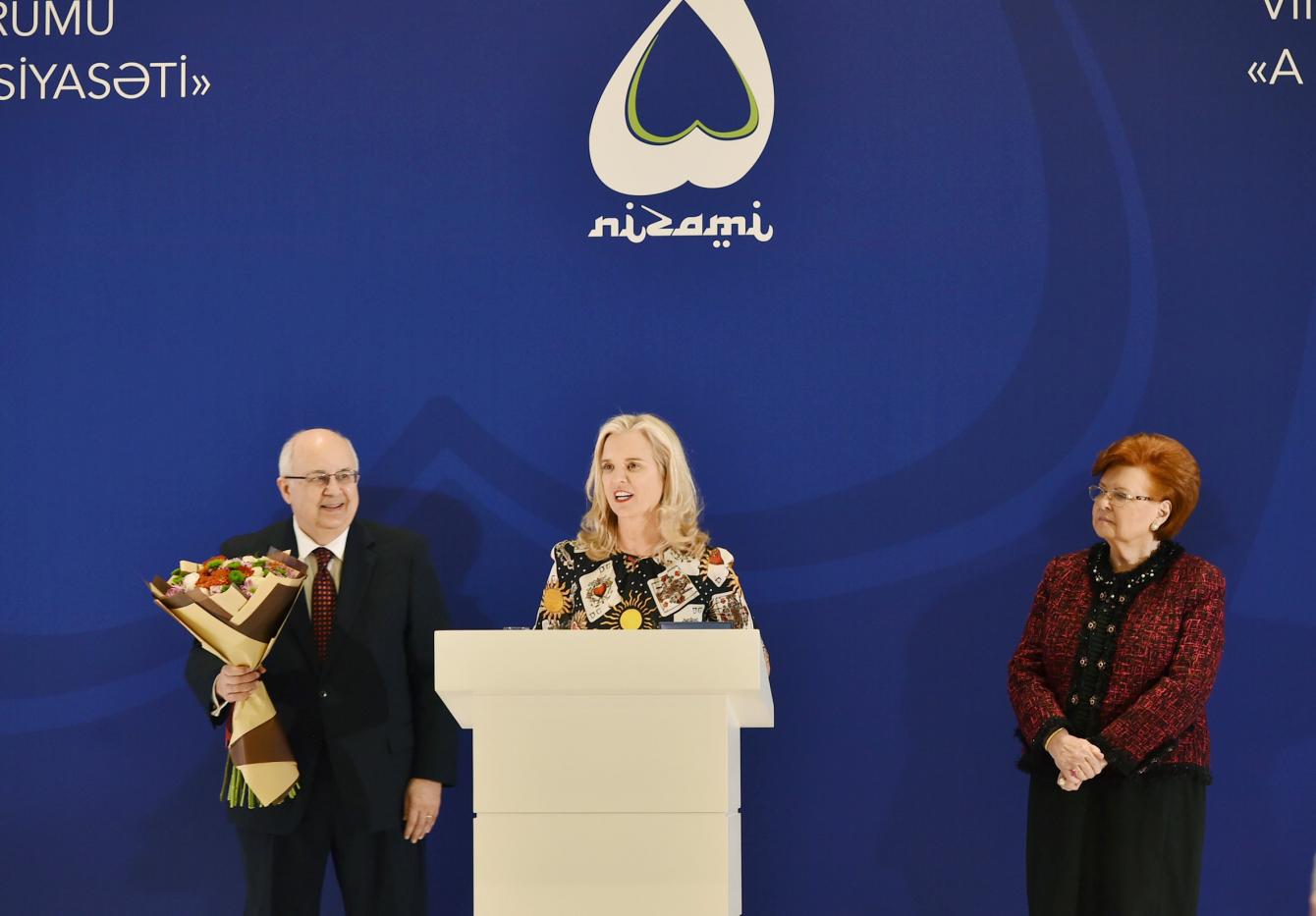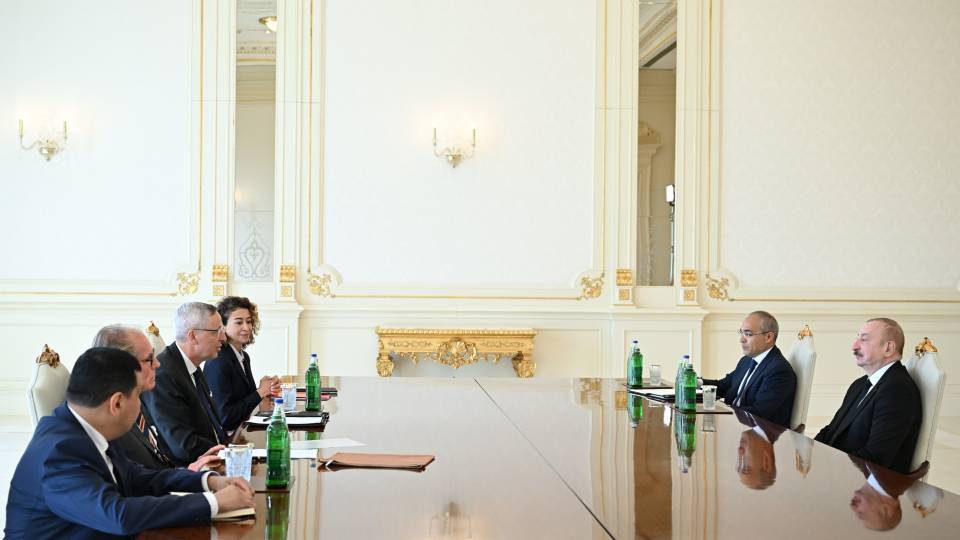Organized by the Nizami Ganjavi International Center under the patronage of President Ilham Aliyev, the 7th Global Baku Forum has kicked off in the capital of Azerbaijan under the motto "A New Foreign Policy”.
President of the Republic of Azerbaijan Ilham Aliyev attended the opening ceremony of the forum.
Afghan President Mohammad Ashraf Ghani, Albanian President Ilir Meta, Member of Bosnia and Herzegovina Presidency Sefik Dzaferovic, Moldovan President Igor Dodon, Montenegrin President Milo Dukanovic, Bulgarian Prime Minister Boyko Borisov, members of the Nizami Ganjavi International Center, former heads of state and government, heads of international organizations, well-known public and political figures, and scientists are among the participants of the forum.
The participants of the forum posed together for photographs.
Co-chair of the Nizami Ganjavi International Center Ismail Serageldin declared the forum open.
President Ilham Aliyev made a speech at the event.
Speech of President of the Republic of Azerbaijan Ilham Aliyev
- Dear ladies and gentlemen,
Dear guests, Dear friends!
Welcome to Azerbaijan. I am very glad to see you all. Thank you for being with us at this important international event. First of all, I would like to express my gratitude to the co-chairs of the Nizami Ganjavi International Center, Madam Vike-Freiberga, and Mr. Serageldin, and members of Board whom I met yesterday for their outstanding contributions in transforming Nizami Center into a global international institution. Baku Global Forum today is one of the most important international platforms to address important issues on global agenda, urgent issues. And the topics of the previous forums reflect today’s agenda of global affairs and I think it is a good choice to address the issues related to foreign policy, called a new foreign policy, because a lot has been changed since the last forum, especially in relations between countries, in issues related with security, and predictability in the world. I am very glad that we have a broad participation at the forum representatives from 55 countries, more than 500 participants among them, among our guests we have five acting presidents, one acting prime minister, two deputy prime ministers, and 42 former heads of state and government. Prominent politicians, representatives of civil society, journalists, scientists, young leaders. So, in this room today we have an outstanding intellectual potential which actually is a reflection of the importance of the forum. There are many international events, conferences on global agenda, but the quality is measured by list of participants and by experience of them and intellectual potential. Therefore, I think that Baku Global Forum has its unique place on the world map, and what will be discussed in the coming days I am sure will attract attention of those who make decisions about the future of international relations and future of the world. Talking about Azerbaijan’s foreign policy, I would say it has not changed much, we cannot talk about new Azerbaijani foreign policy, but of course, situation in the region, in the world, is changing and we are adjusting, our foreign policy initiatives to the changing world. But basically our foreign policy is stable, predictable, and independent. It is based on our national interests and establishing close ties with countries is one of the priorities of Azerbaijan through partnerships, through mutually beneficial cooperation towards security, stability in our region, and in a broader region. Therefore, with respect to foreign policy directions, Azerbaijan since the last global forum continue its initiatives. I think we managed to strengthen our ties with our traditional partners and find new friends to build new bridges. Of course, for any country including Azerbaijan, relations with its neighbors is a main priority and in this respect, since last forum our relations strengthened. We have established very fruitful working relations based on mutual interests and mutual respect with our neighbors and this helps to build more bridges in the areas of transportation, energy security, trade and investments. Therefore, our traditional ties with neighboring countries provide regional security. Talking about regional security of course, we must talk about the conflict between Armenia and Azerbaijan. Occupation by Armenia 20 percent of internationally recognized territory of Azerbaijan continues. As a result of this occupation Nagorno-Karabakh, historic part of Azerbaijan and seven other districts of our country are under occupation and more than one million refugees and IDPs suffer from occupation. Our people were the subject of ethnic cleansing and all our historical monuments on the occupied territories are destroyed by Armenian armed forces. And this is reflected in the report of OSCE which twice sent missions to find facts on the occupied territories. Occupation of Azerbaijani lands is a brutal violation of international law and relevant resolutions and decisions of main international organizations. United Nations Security Council adopted four resolutions demanding immediate and unconditional withdrawal of Armenian troops, from our territories and they are not implemented by Armenia. United Nations Secretary General, OSCE, Organization of Islamic Cooperation, European Parliament, Non-Aligned Movement and other organizations adopted similar resolutions and decisions. They are based on international law. They are based on justice, and they create a legal framework for peaceful resolution of the conflict. Status-quo is unacceptable, and presidents of the countries of the OSCE Minsk Group which has a mandate to organize negotiations, on several occasions stated that the status-quo is unacceptable and we fully support that status-quo must be changed. And in order to do it, Armenia must start to withdraw its troops from the occupied territories of Azerbaijan, and allow refugees and IDPs to return to their homeland. There have been and still we see the tense of the Armenian government to try to change the negotiation format. This is absolutely unacceptable and counterproductive and we consider it as an attempt to block negotiation process. And not only we think like that, we are glad that international organizations share this view. Just recently OSCE Minsk Group co-chairs issued a statement actually sending a clear message to Armenia that their attempts to change negotiation format are not accepted. Couple of days earlier high officials of the European Union, made the same statement. Negotiation format has been elaborated for many years and any attempt, on unilateral change is considered an attempt to block the negotiation process with all responsibility on the side which tries to do it. Therefore, negotiations format cannot be changed. This is first thing and second negotiations must be result-oriented not just for the sake of negotiations. Azerbaijan is ready to continue this process. And as a result of the negotiations, our territorial integrity must be restored. Territorial integrity is fundamental principal of international law. United Nations Charter, Helsinki Final Act, has a very clear definition of the balance between territorial integrity and self-determination. Self-determination should not violate territorial integrity of countries. Therefore, the conflicts must be resolved based on international law norms, relevant resolutions of Security Council of United Nations and based on territorial integrity of Azerbaijan. Our foreign policy priorities also cover relations with international organizations. We are actively participating in different initiatives which create bridges between different international organizations as one of the few countries which is a member of the Organization of Islamic Cooperation and the Council of Europe. We knew this opportunity in order to establish more partnership between these two organizations. Azerbaijan in Organization of Islamic Cooperation plays important role in strengthening Islamic Solidarity in reducing tensions between some member states and as a demonstration of our efforts we successfully held two years ago the 4th Islamic Solidarity Games. Two years before Azerbaijan was the country which held the First European Games. Can you imagine in two years time in one city we had the European Games and the Islamic Solidarity Games that is actually reflection of our role on international arena and our efforts to bring countries and civilizations closer. We have signed and adopted with nine members of European Union declarations and agreements on strategic partnerships. This is one third of member states, and this also demonstrates our active cooperation with the European countries. Last year with the European Union we initialed very important document which is named partnership priorities which actually covers all the major areas of our cooperation. Particularly, there is a clear indication to the conflict resolution between Armenia and Azerbaijan and in this documents there is a full support to Azerbaijan’s territorial integrity, sovereignty, and inviolability of the borders. Therefore, coming back to the conflict with Armenia, all the international, major international organizations see the resolution of the conflict based on these principles and the only way how to resolve the conflict is to restore the territorial integrity of Azerbaijan. Using this opportunity of close cooperation between different countries Azerbaijan launched the Baku process. We celebrated last year the tenth anniversary of Baku process that started when we invited ministers of cultures, members of Organization of Islamic Cooperation and Council of Europe for the joint session and that was very successful. So, the next year we had another meeting and then this format was named Baku process which is supported by the United Nations and this is an only format of interaction and discussions between these two big international organizations which embrace more than hundred countries. Multiculturalism is a state policy of Azerbaijan and Azerbaijan is recognized in the world as one of the centers of multiculturalism. This has a historical background. For ages Azerbaijan was a place where representatives of different religions and ethnic groups lived in peace and harmony, and we are proud that after restoration of our independence this tendency strengthened, and we try to promote these ideas on global arena. Therefore, we organized numerous events, international conferences like World Forum on Intercultural Dialogue, World Religious Leaders’ Forum, Forum of the United Nations Alliance of Civilizations, Baku Humanitarian Forum and many other international events concentrating on issues related to multiculturalism specially when we see different views on this issue. And I think that example of Azerbaijan clearly demonstrates that multiculturalism is only way how the world can develop, and how to reduce tensions and strengthen cooperation and mutual understanding. Azerbaijan is relatively young independent country, but we receive a very strong support from international community, as a reflection of that, indicator of that I would refer to the election of Azerbaijan as a non-permanent member of the United Nations Security Council several years ago with the support of 155 countries. So, this shows that Azerbaijan has a support and trust from the absolute majority of international community. And as a non-permanent member of Security Council we play very important role in addressing important issues related to security, and intercultural dialogue. We also play our role in global security we participate in peacekeeping operations, relatively recently we increased the number of our servicemen who served in Afghanistan, providing security there. Also we provide very important transportation and logistical support, for coalition forces, and the Northern distribution network, which Azerbaijan is a participant of, is very reliable route of supply. That was possible also due to the investments in modern infrastructure, especially in transportation. Since the last global forum, we inaugurated big trade sea port, on the Caspian shore of Azerbaijan. This sea port is capable to transport large volumes of cargo from 15 at the first stage to 25 million tons, and is playing a very important role in bringing countries closer. When we talk about foreign policy of course we need to have a substance in that foreign policy. Without our foreign policy, without our political efforts it would not be possible to establish a strong transportation links which Azerbaijan already has. And our targets several years ago to transform the country into a regional transportation hub are already bringing results. Azerbaijan is active participant of the East-West Transportation Corridor. In 2017, we inaugurated the railroad connection between Azerbaijan and Turkey via Georgia, thus, connecting European railroad with Asia. And last year inauguration of the sea port is just another element of this transportation network. We already receive cargoes from Asian countries, from Central Asia, relatively recently we already had physical connection with the Lapis Lazuli railroad which Afghanistan is promoting, and the East-West Corridor. So, we receive cargoes already from new sources and it is not only economic benefit, it’s also connection between countries, interdependence, and close cooperation. So, the transportation sector is an important sector of international relations, and it creates a very good spirit of partnership. Another sector which also is important for global security is energy sector, and Azerbaijan is investing a lot in energy security. Our energy projects together with major international energy companies not only bring benefit to our people, our country, they create tens of thousands of jobs in Azerbaijan and in the neighborhood and they lead to international partnership. Azerbaijan connected Black Sea and Caspian Sea with oil pipeline, Mediterranean Sea and Caspian Sea with oil pipeline for the first time in the world, and now we are working on the big project which is named Southern Gas Corridor, which connects Azerbaijan, Georgia, Turkey, Bulgaria, Greece, Albania and Italy with the integrated pipeline system. This is 3,500 kilometers long pipeline which is in the final stage of completion. Last year, last May, we officially inaugurated the Southern Gas Corridor and last June one of the important part of that Trans-Anatolian Pipeline (TANAP) was also inaugurated. Azerbaijani gas is already being transported through this pipeline and hopefully next year the full project will be completed. It is one of the biggest infrastructure projects in the region, total amount of investments into production, transportation, production of gas and transportation is around 40 billion dollars. We have a strong support from international financial institutions and of course corporate money is used so this is the project of energy security, energy cooperation and cooperation between countries. And our plans go beyond today’s format. We already signed MoU with countries of Balkans like Bosnia and Herzegovina, Croatia, Montenegro, hopefully at the next stage we will start also active cooperation with these countries. Geography of the countries, which are planning to join in this or that way the projects of the Southern Gas Corridor, is growing. So, this clearly shows how energy transportation initiatives lead to a broad international cooperation. I think that in energy sector and in transportation sector we created a new broad format of international cooperation including countries of Asia, Caucasus, Europe and members of the European Union. This is really a big asset and we are only on the beginning of this process. Because we are only in the phase of implementation and after all this projects are implemented, there will be economic incentives, economic benefits, tens of thousands of jobs in these countries and this will bring the countries closer. In the beginning I said that Azerbaijan’s foreign policy is independent and based on national interests the basis for that is not only our political will but also our economic development. During the last fifteen years our economy grew 3.2 times. We managed to complete the major infrastructure projects for Azerbaijan, improve largely our financial situation. We have a very low foreign debt about 19 percent of our GDP and our reserves are 4-5 times bigger than the debt. So financial stability, economic development of Azerbaijan creates opportunities not only for our country but allowed us to invest in the neighborhood and thus building more bridges. I think that agenda of the forum is selected very wisely and you will address the most important and urgent issues which today is of concern and I am absolutely sure that your fruitful discussions and recommendations will lead to strengthening partnership and reducing tensions. I wish the forum success. Thank you very much.
Other speakers at the ceremony included Afghan President Mohammad Ashraf Ghani, Albanian President Ilir Meta, Member of Bosnia and Herzegovina Presidency Sefik Dzaferovic, Moldovan President Igor Dodon, Montenegrin President Milo Dukanovic, and Bulgarian Prime Minister Boyko Borisov.
Italian Ambassador to Azerbaijan Augusto Massari read out President Sergio Mattarella's, Ambassador of the United Kingdom of Great Britain and Northern Ireland to Azerbaijan Carole Crofts read out Prime Minister Theresa May's, and Assistant Administrator of the United Nations Development Programme (UNDP), Director of the UNDP Regional Bureau for Europe and the Commonwealth of Independent States Mirjana Egger read out Secretary-General Antonio Guterres’ messages to the forum participants.
Co-chair of the Nizami Ganjavi International Center, former Latvian President Vaira Vike-Freiberga then addressed the opening ceremony.
The event then featured the presentation of the Nizami Ganjavi International Award for 2019. President of the Islamic Republic of Afghanistan Mohammad Ashraf Ghani and president of Robert F. Kennedy Human Rights Kerry Kennedy received the Nizami Ganjavi International Award by the decision of the Center’s Board of Trustees.
The forum continued with sessions.
X X X
Over 500 delegates from 55 countries attend the three-day Forum.
The Forum features 10 sessions which will discuss global and regional issues.

